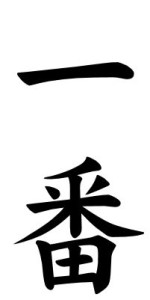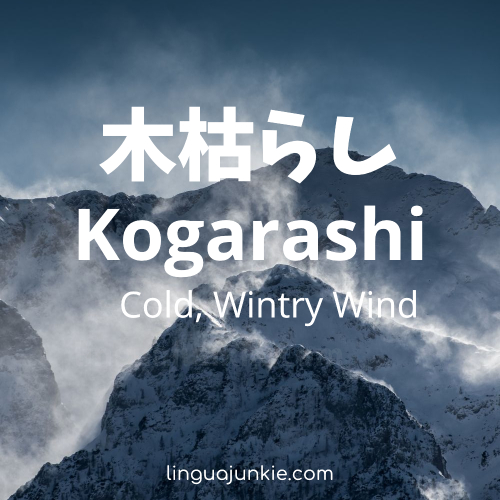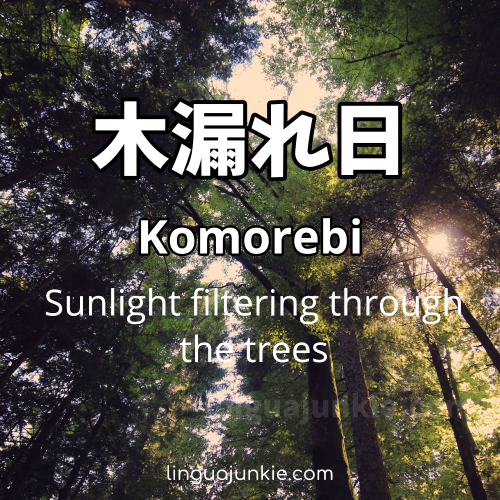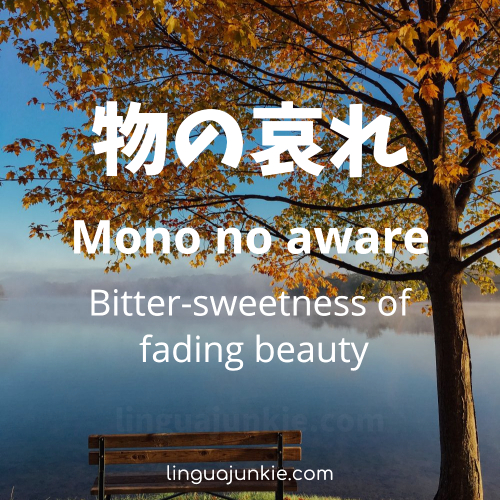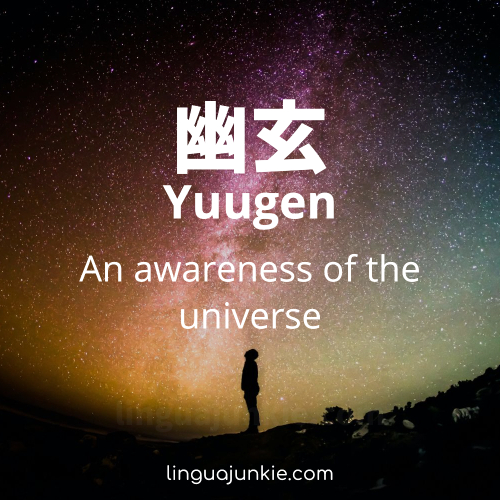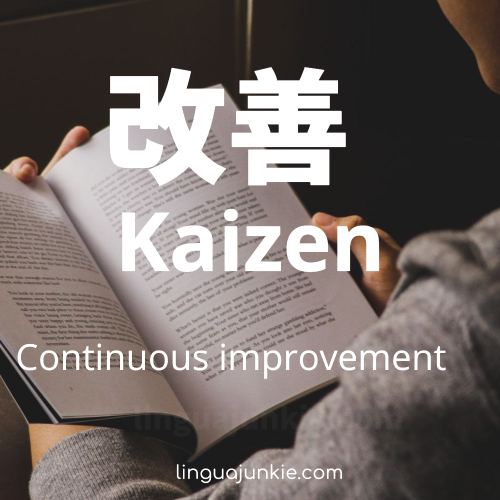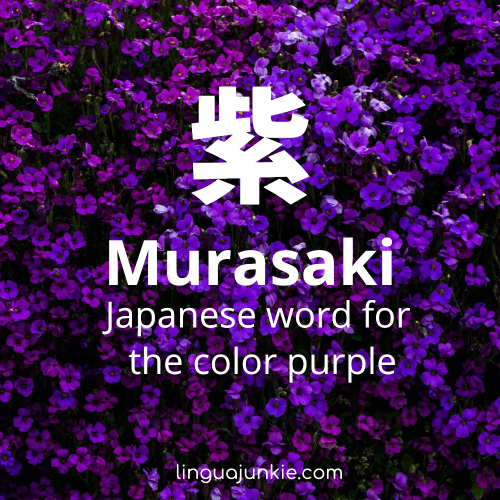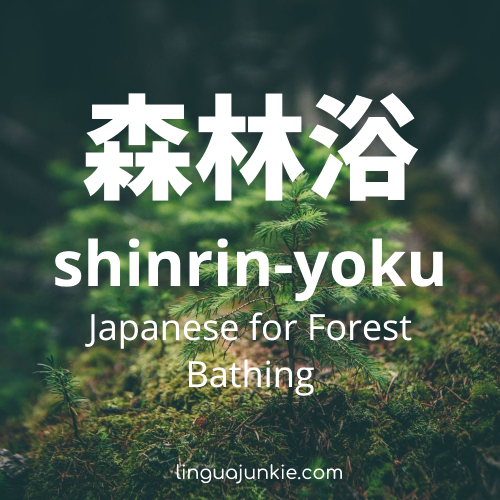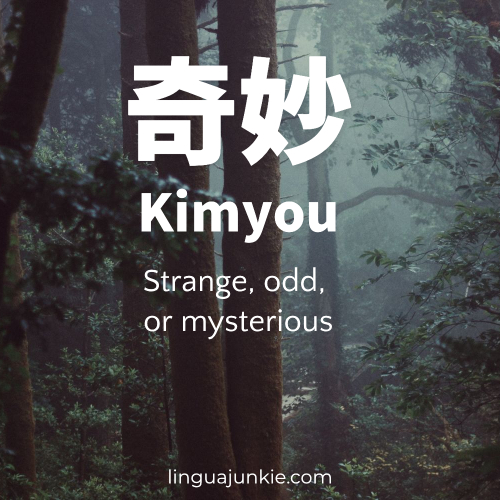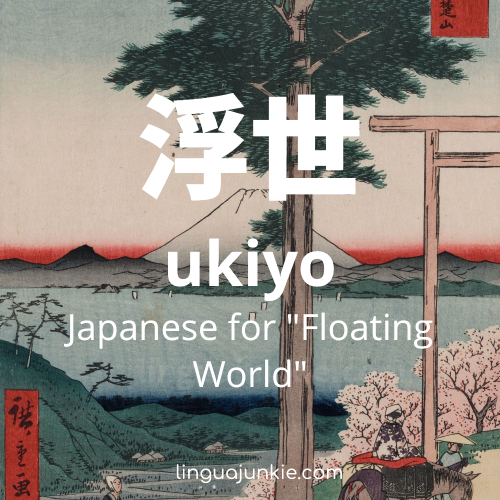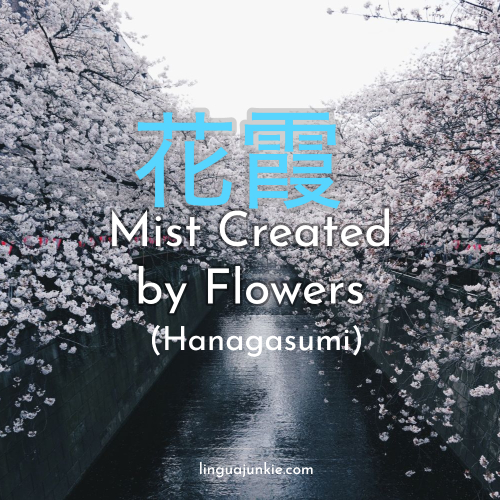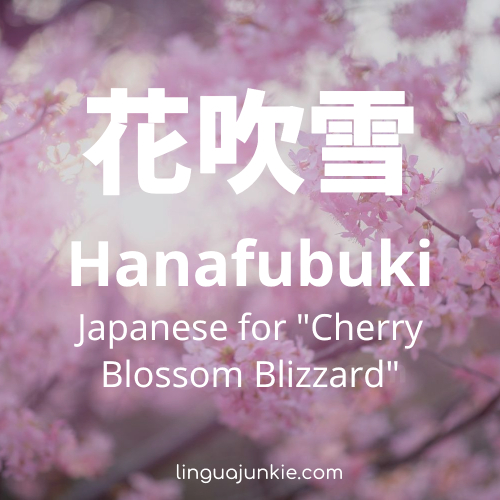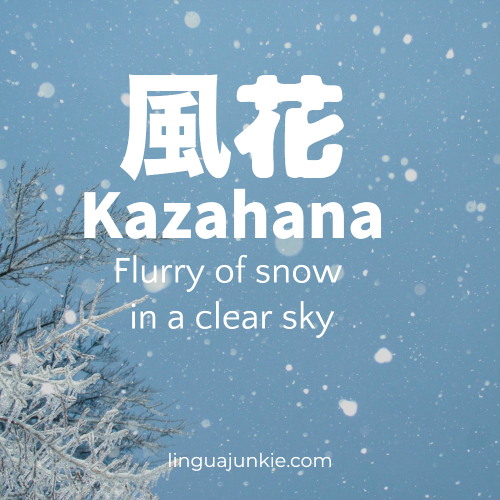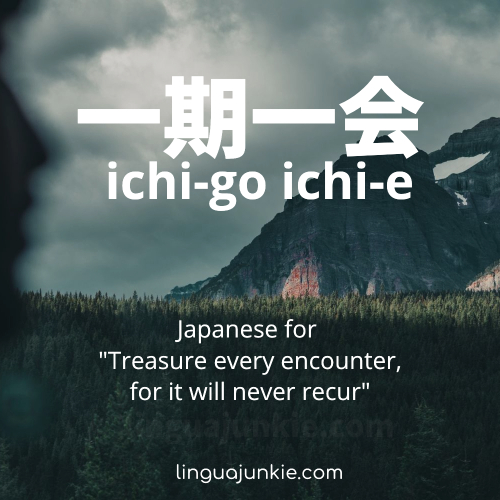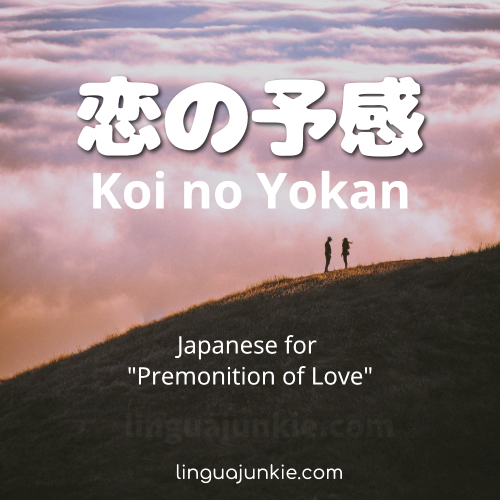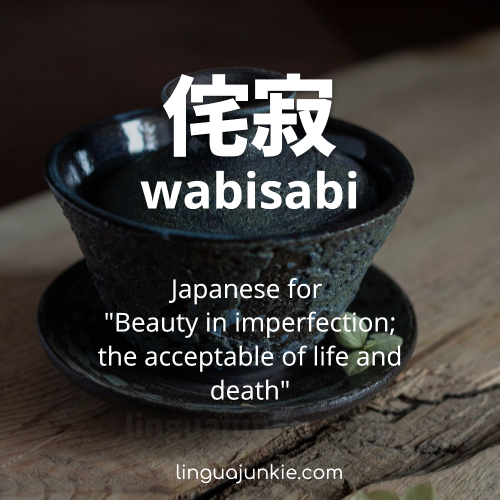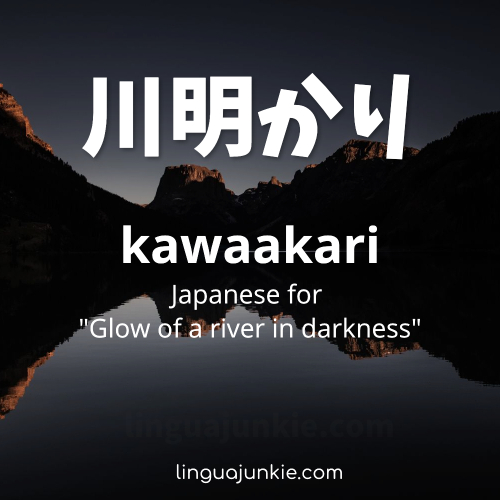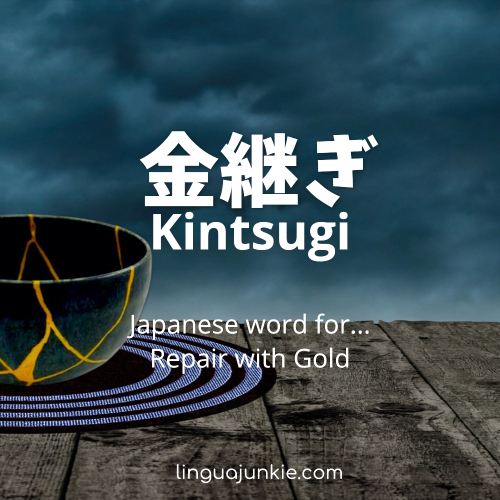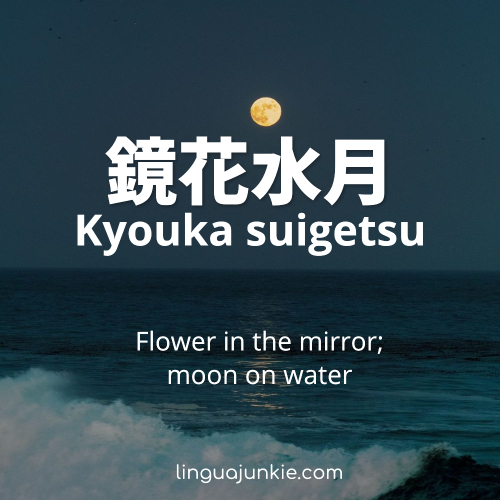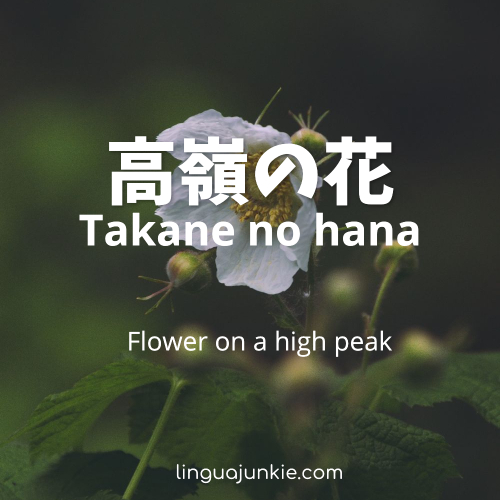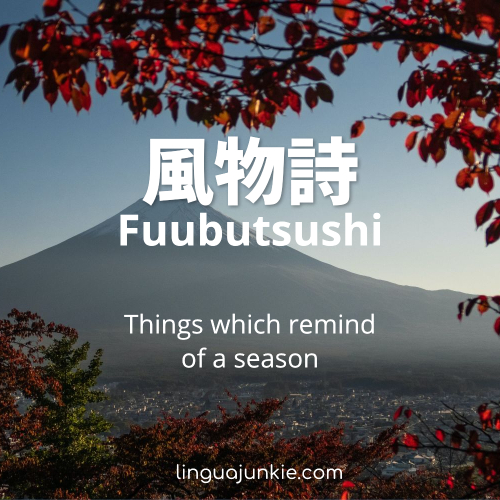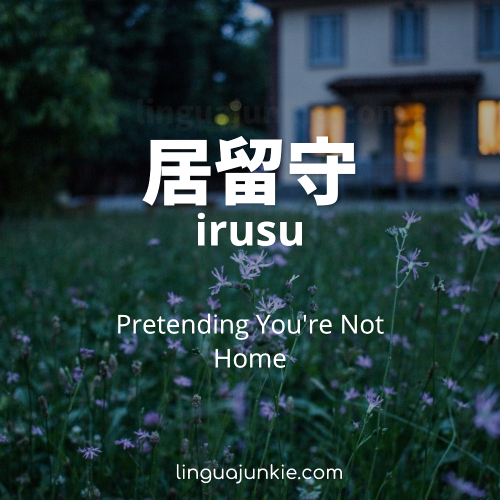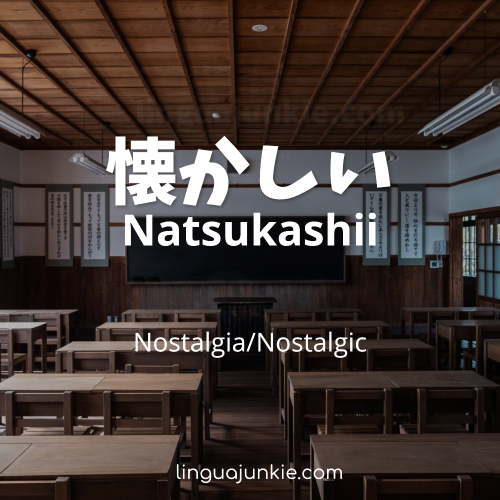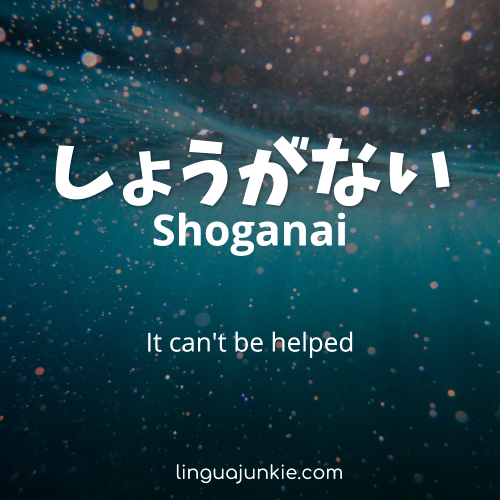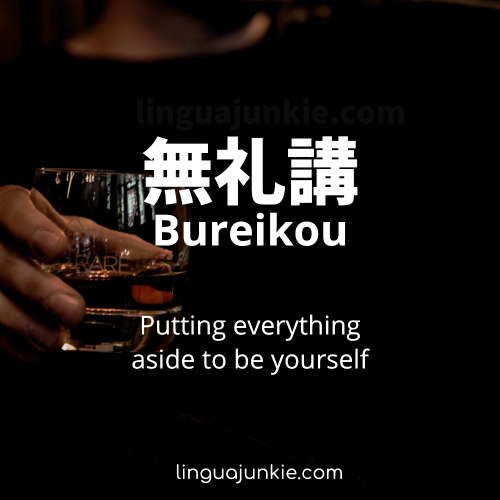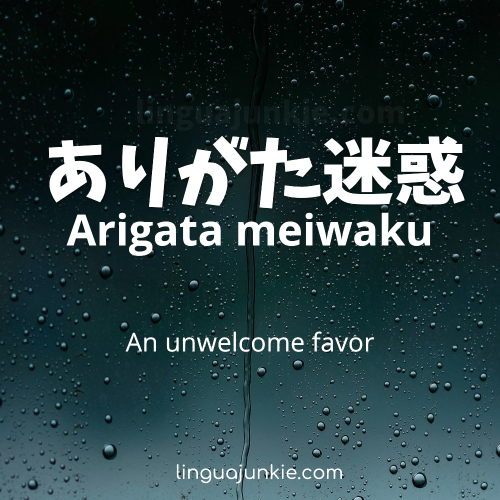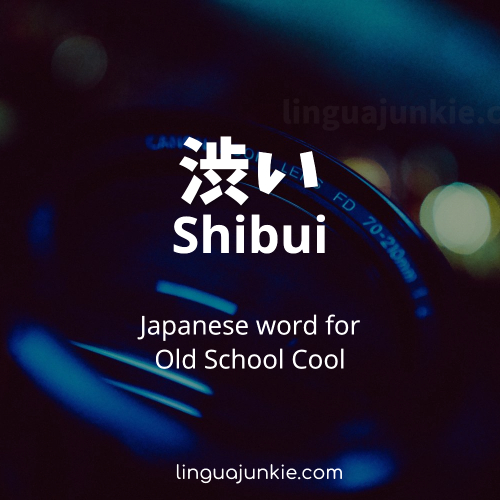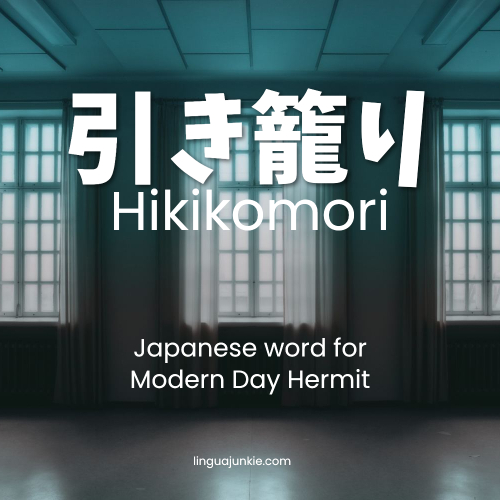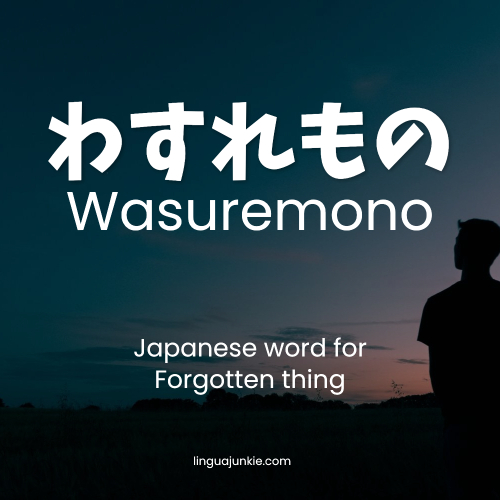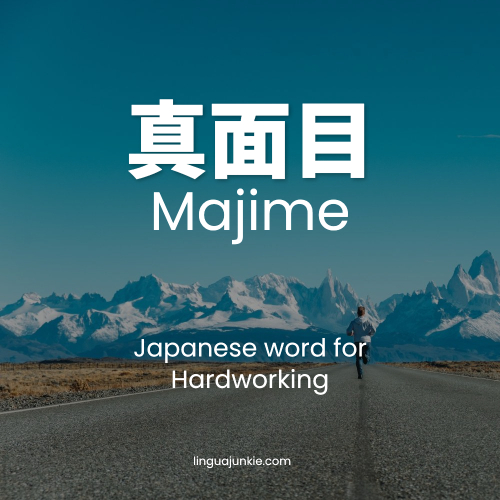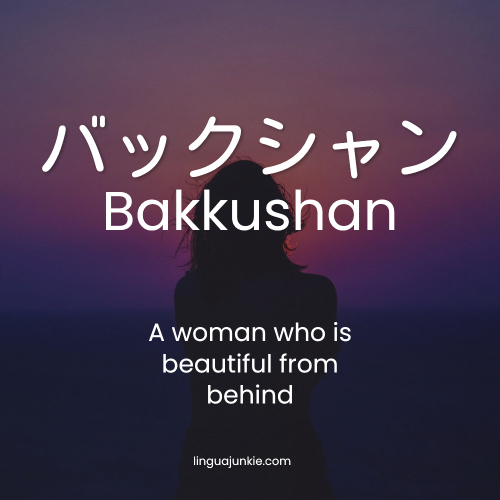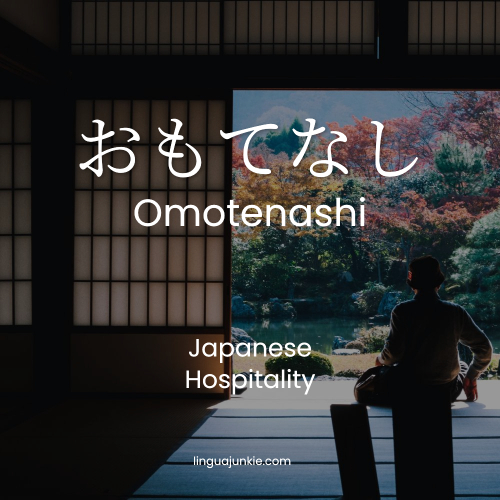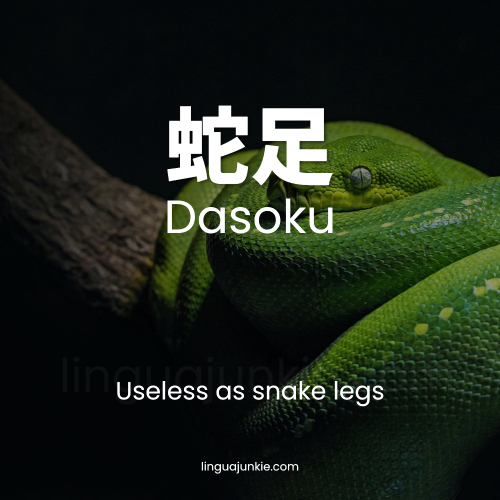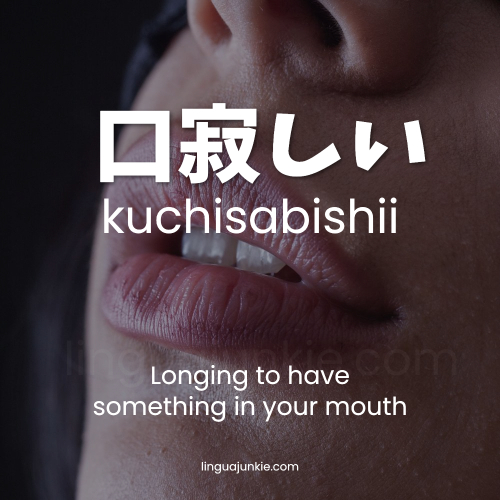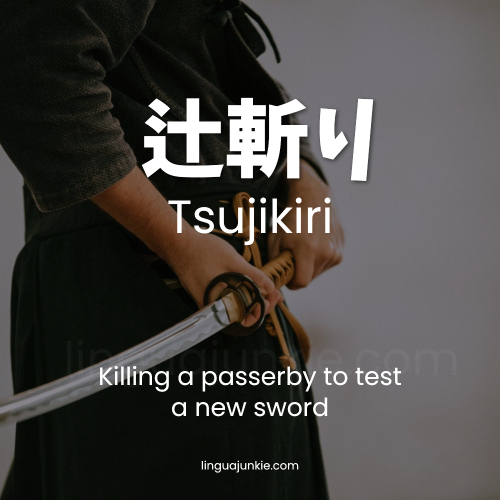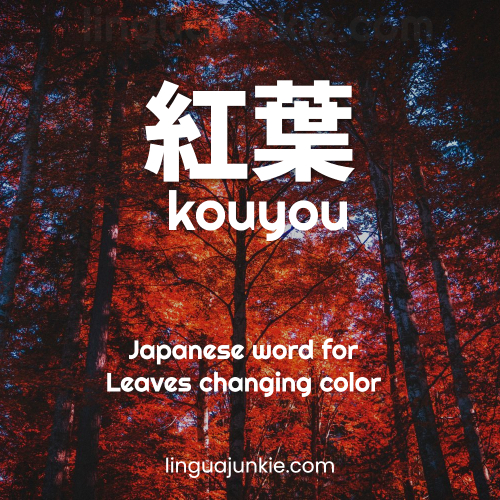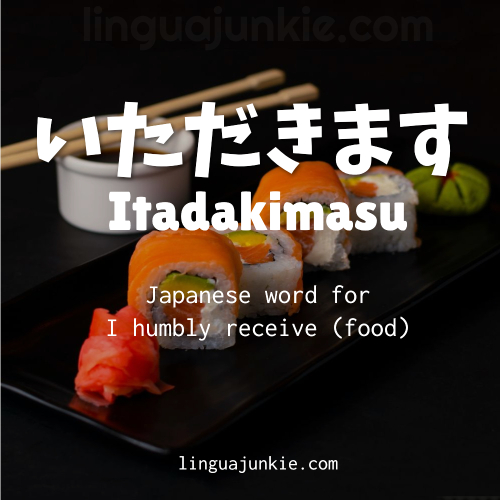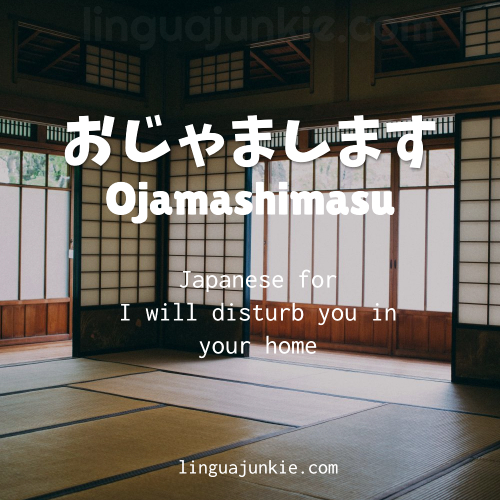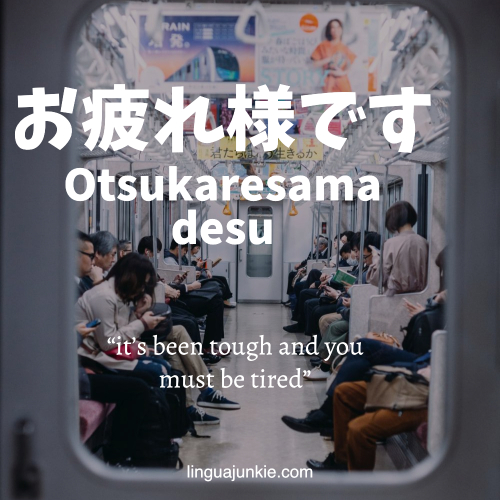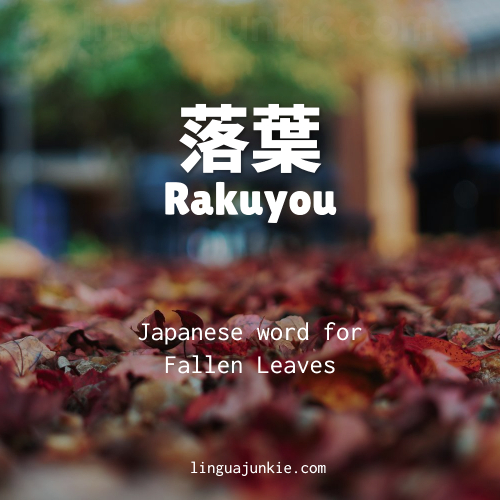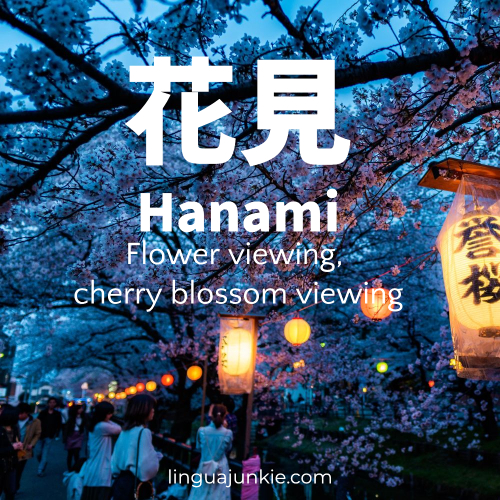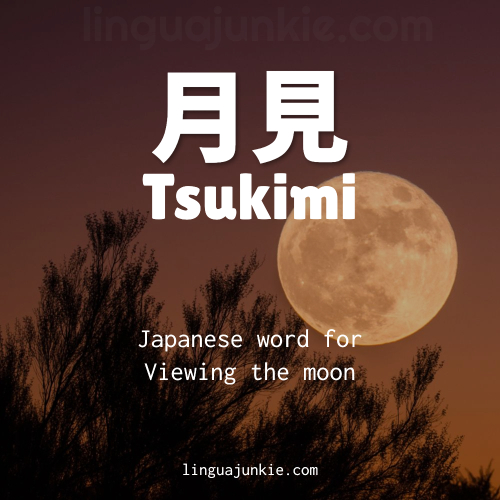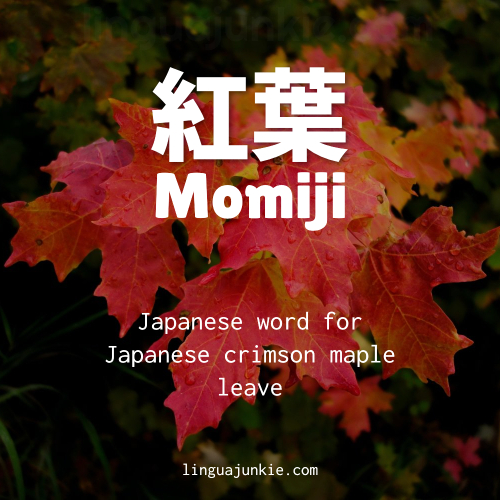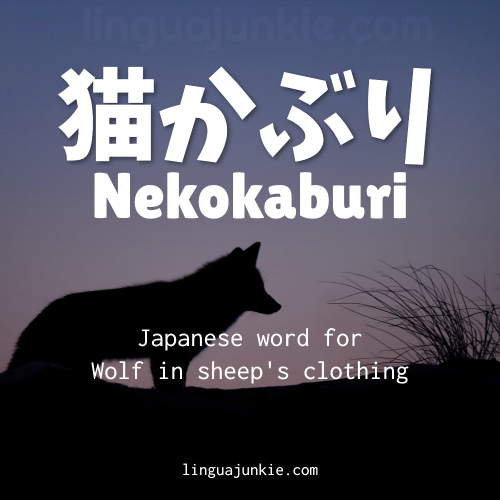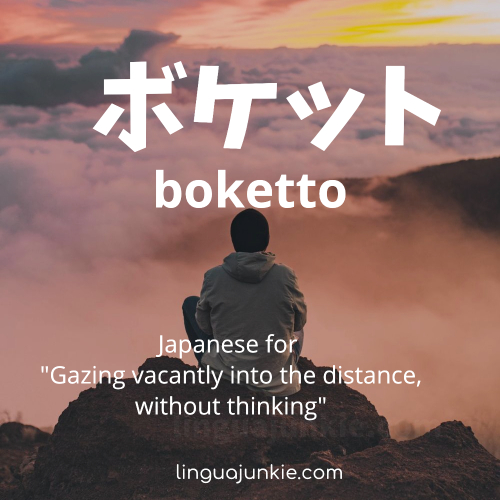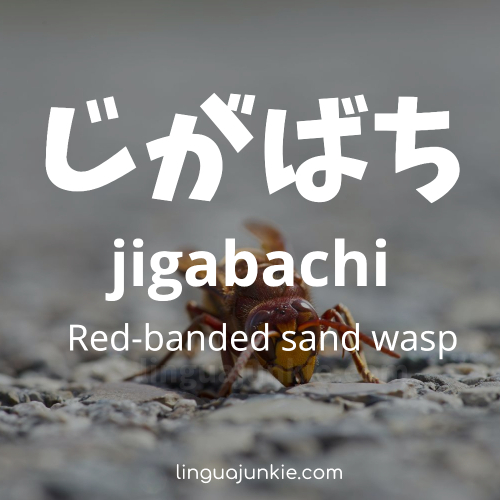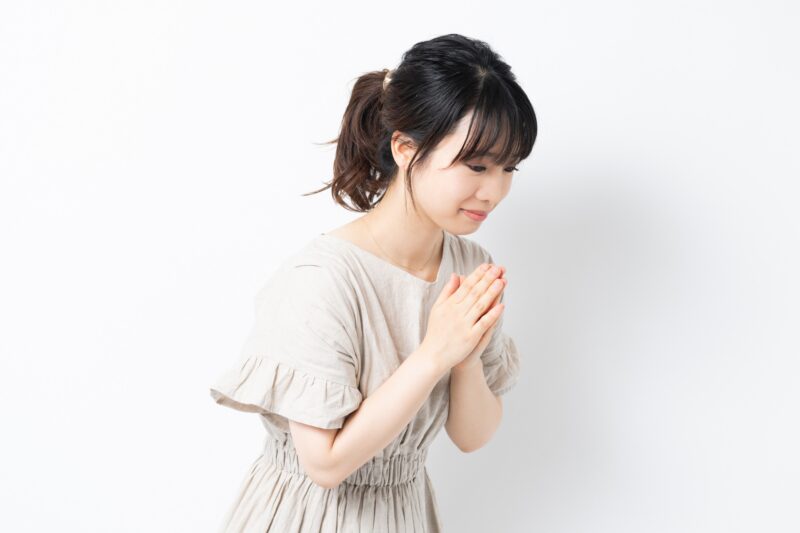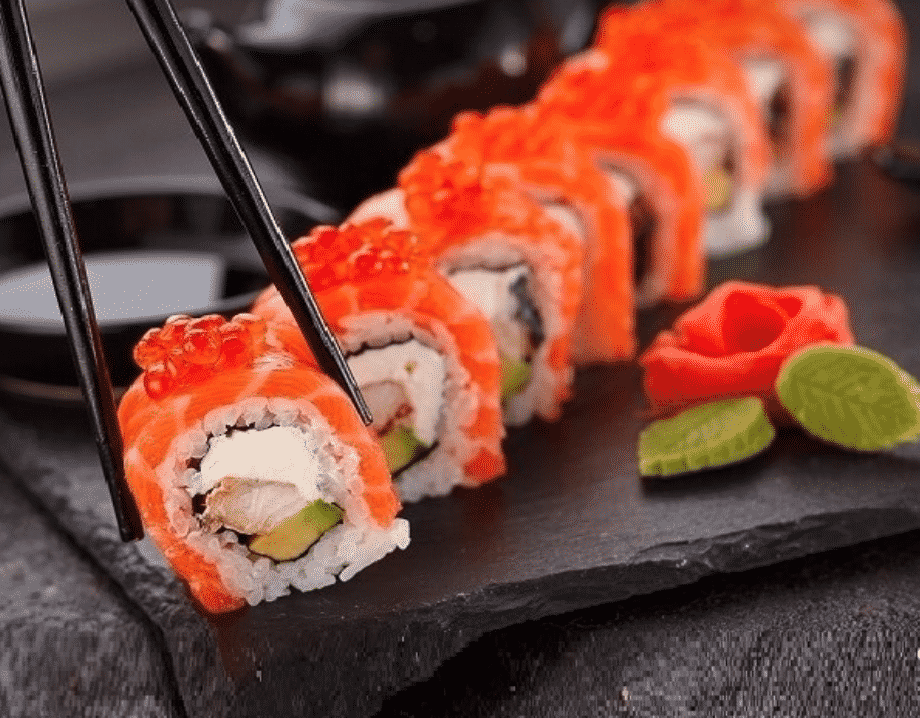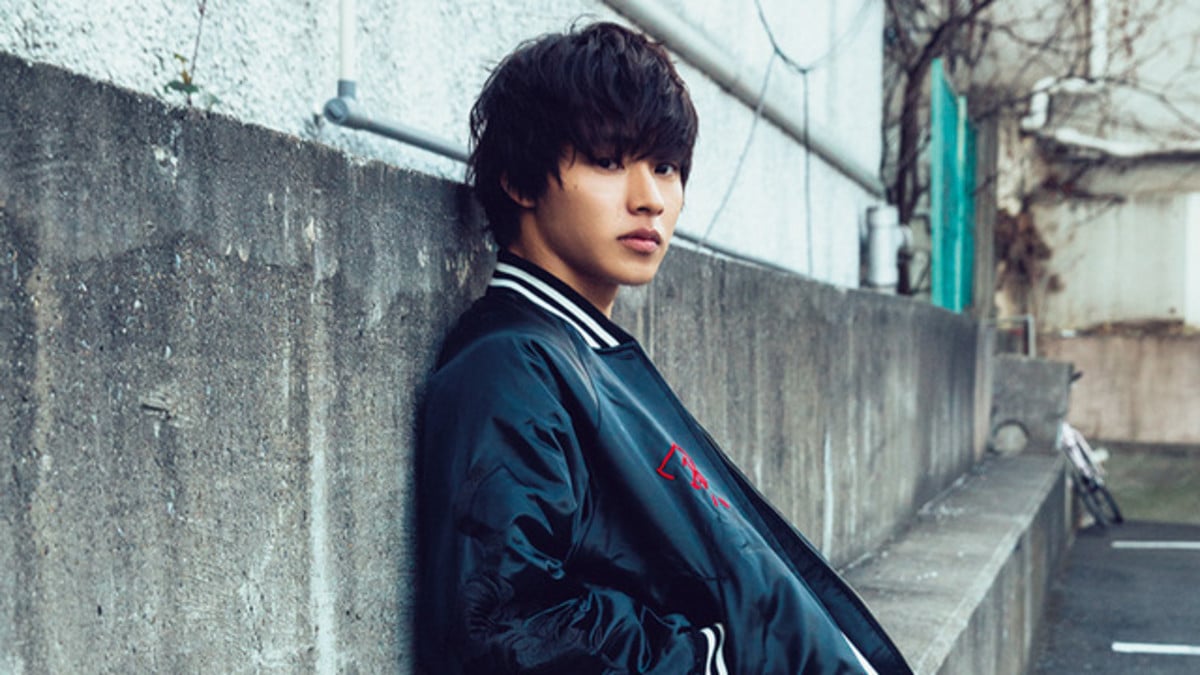| 人 | |
| 1. n. a person, human | |
| 2. n. an individual | |
| 3. n. mankind, people | |
| 4. n. character, personality | |
| 5. n. an average person | |
| 6. n. an adult | |
| 7. n. someone (else) | |
| 8. n. Usage: * When scientifically referring to humans, this term is often spelled in katakana, as ヒト. | |
| 9. n. Usage: * From (Old Japanese) or w, Middle Japanese development, hito is sometimes shifted to -uto, -udo, -to, -tto, or -do. | |
| 10. pron. second-person personal pronoun: you | |
| 11. n. a personality | |
| 12. n. the role of that person | |
| 13. counter. counter for number of people | |
| 14. counter. Usage: The -nin reading is commonly used when counting three or more people. When counting one or two persons as in 一人 or 二人, the reading is り or たり. | |
| 15. affix. man | |
| 16. suffix. person from that group | |
| アジア人、イギリス人、スペイン人、ドイツ人、アメリカ人、スコットランド人 — an Asian, an Englishman, a Spaniard, a German, an American, a Scot | |
| 17. suffix. person who does the activity of the suffixed word | |
| 18. affix. man | |
| 19. counter. counter for number of people | |
| の |  |
| 1. syllable. Hiragana syllable, romaji no | |
| 2. part. genitive case marker | |
| 3. part. indicates possession: of, -‘s | |
| 私の意見 — my opinion | |
| 4. part. indicates identity or apposition | |
| 大統領のブッシュ氏 — the President, Mr. Bush | |
| 山田の馬鹿野郎! — Yamada, you stupid jerk! | |
| 山田の奴 — that dude Yamada | |
| 5. part. a noun, adverb, or phrase modifier | |
| 数学の分野 — the field of mathematics | |
| 緑の車 — green car | |
| 全て の 商品 — all goods | |
| 母 へ の 手紙 — letter to mom | |
| 6. part. nominative case marker in a relative clause | |
| 眉毛の濃い人 — a man whose eyebrow is thick | |
| 7. part. a sentence ending that indicates emphasis or a question, depending on intonation | |
| 不可能じゃないの? — Isn’t it impossible? | |
| 聞いてんの? — Are you listening? | |
| 8. part. Nominalizes an adjective, verb, or phrase | |
| 食べるのが大好きだ。 — I like eating very much. | |
| 9. part. Usage: * In senses 3 and 4 | |
| Usage: * 可能なの? — Is it possible? | |
| Usage: * 色がきれいなのがいい。 — I prefer something with a beautiful color. | |
| 10. part. Usage: * For sense 3, use of の in declarative sentences for emphasis carries a female undertone (cf. わ). | |
| 11. part. Usage: * の is sometimes weakened into ん in fixed compounds, such as 桜ん坊 or 飴ん棒. | |
| 12. n. 野, 埜: a plain, field; the hidden part of a structure | |
| 13. n. 篦: the shaft of an arrow; , a species of bamboo | |
| 14. n. 幅, 布: a unit of measurement for cloth breadth, approximately 36 centimeters | |
| 15. prefix. 野: wild; (person) lacking a political post |
Continue Learning about Other Arts
What is the Japanese word for the English word amethyst?
The Japanese word for «amethyst» would be one of these:-amejisuto,-ameshisuto,or-murasakisuishou.
What songs have the word Japanese in them?
The song «Turning Japanese» by the Vapors is one example.
What is the Japanese word for sin?
One user said: the Japanese word for sin is, «Nashide.»
Another user said:
«Tsumi» (tsoomee) is how you would say «sin» in Japanese.
What is the Japanese word for Death?
The Japanese word for ‘death’ is ‘shi’.Shinu — To dieShinda — DiedShime(?) — DeathNot so sure on the last one.
What is the Japanese word for surrender?
Japanese word for surender

Uncategorized
14.01.201813.06.2015
Japanese Word Images for the word Number One
一番 means Number One
Here are some Japanese word images for the word “Number One”. In Japan we use the words “一番(いちばん-ichiban)” for translating this word into Japanese.
The below images are Japanese Kanji and Hiragana for this Japanese words.
一番 means Number One
Hiragana for 一番
Kanji Stroke Order for 一番
Kanji Writing order for 一番
Hi!
Beautiful in Japanese is 美しい (utsukushii) and beauty is 美しさ (utsukushisa).
But, if you want know some beautiful Japanese words, you’re in luck.
The language is full of words and phrases that are not immediately translatable into English. Aesthetic Japanese words that don’t have an English counterpart and require explanation.
In this guide, you’ll learn 55+ beautiful words and phrases. So, let’s jump in.
1. 木枯らし Cold, Wintry Wind
- Pronunciation:
- Kogarashi
“Kogarashi” is a chilly, cold, wintry wind. It lets you know of the arrival of winter. You know, the kind that sends the shivers down your spine and gives you goosebumps.
2. 木漏れ日 Sunlight filtering through the trees
- Pronunciation:
- Komorebi
When sunlight filters through the tree leaves and produces rays. You know that 木 stands for tree, 漏れ/もれ means leakage and the 日 kanji stands for the sun. So, tree leakage (of the) sun.
3. 物の哀れ Bitter-sweetness of fading beauty
- Pronunciation:
- Mono no aware
物/Mono means “thing.” And, “aware” looks like the English word, but it doesn’t have the same meaning or pronunciation. It means pity, sorrow or grief. So this refers to the “bittersweetness of fading beauty” – the acknowledged but appreciated, sad transience of things. Kind of like the last day of summer or the cherry blossoms – which don’t last long.
4. 幽玄 An awareness of the universe
- Pronunciation:
- Yuugen
Literally it means “subtle grace” or “mysterious profundity.” This word has different meanings depending on context. But most of the time, it refers to a profound awareness of the nature of the universe – the oneness of all things – to the point where it affects you emotionally.
Sound vague and odd? Well, don’t worry. To settle your mind, this word is not translatable and has no English equivalent… so if you’re confused, it’s okay.
5. 和 Harmony
- Pronunciation:
- Wa
This word means peace or harmony. It implies the importance to of avoiding conflict – so as to maintain the (Wa) harmony. And it refers to Japan and the Japanese way itself.
6. 改善 Continuous improvement
- Pronunciation:
- Kaizen
Literally, it means change for better. Whether one time or continuously – this is not implied or intended. It’s not until later that it become continuous improvement by the Japanese business world. Toyota kicked it off.
So, now, it’s just a word (used by businesses) to describe the process of “always improving” and getting better.
7. 紫 Purple
- Pronunciation:
- Murasaki
Yes, the color purple. Why did it make the list of beautiful Japanese words?
Simply because of how it sounds to the ear. Say it with me – murasaki! Okay, there’s more. Back in the old, old days– say around the year 1400 – this color was the color of the upper class and only high level officials and Imperial family could wear it. So, this color is a pretty big deal and a pretty beautiful Japanese word, in my opinion.
8. 森林浴 Forest Bathing
- Pronunciation:
- shinrin-yoku
So, 森林/shinrin means forest and 浴/yoku stands for bathing. And this refers to being immersed in a forest or talking a walk through the woods. It’s something to do to relax, reduce your stress and improve your health.
And studies confirm that this indeed lowers blood pressure and cortisol.
9. 奇妙 Strange, odd, or mysterious
- Pronunciation:
- Kimyou
This is a word that can describe things that are strange or odd. For example, if you suddenly received an anonymous letter, you could use “kimyou.” It can also be used to describe creepy locations like forests, cemeteries, or houses.
10. 浮世 Floating World
- Pronunciation:
- ukiyo
Now, this isn’t a recent term and you won’t hear it much. It’s rooted in Japan’s history. It literally does mean “浮 – float” and “世 – world/society.” Although it can also be interpreted as “transient world” or “fleeting life.” Basically, this word was used to describe Japanese life-style in Edo-period Japan, where normal people escaped the pressures of the samurai state to entertainment/pleasure districts (whether theater, tea-houses, etc.).
You won’t hear it much in everyday life.
11. 花霞 Flower Mist
- Pronunciation
- Hanagasumi
“Hana” means flower and “gasumi.” What this word refers to is the image of Cherry Blossom trees where the white petals make it look like you’re seeing a mist or haze of white.
12. 花吹雪 Cherry Blossom Blizzard
- Pronunciation:
- Hanafubuki
花 (Hana) means flower, petal (or cherry blossom) and 吹雪 (fubuki) means blizzard or snowstorm. However, this typically refers to Cherry Blossoms (Sakura) and how their petals come floating down, slowly, en-mass, as if a snow storm or blizzard.
Here’s a sexy example – if it moves you, you can say you felt “yugen” or that it’s “mono no aware.”
13. 風花 Flurry of Snow in a Clear Sky
- Pronunciation:
- Kazahana
If you go by the kanji, the first one stands for wind and the other one is for flowers. Except, this word is used to describe snow flurries in the wind. Why the flower comparison though? Well, because it’s kind of like petals in the wind.
14. 生き甲斐 Reason for Being
- Pronunciation:
- ikigai
As the Japanese say, everyone has an ikigai. It’s what gets you up in the morning. It’s what moves you. What makes your life worthwhile. Work. Hobbies. Goals. Taking care of kids. Learning Japanese. It’s probably why I’m writing this at 3:17AM on a Saturday morning! Knowing your ikigai might require a lot of introspection and search. Now, let’s break it down:
- 生き – Iki – Meaning: living or being alive
- 甲斐 – kai (though it’s changed to gai) – meaning: worth or use
What’s your “ikigai?” Leave a comment.
15. 一期一会 Treasure every encounter, for it will never recur
- Pronunciation:
- ichi-go ichi-e
This is actually a Japanese proverb; a Zen Buddhist one.
Literally, it means – one time, one meeting. Usually, it’s translated as “one chance in a lifetime.” But the BEST translation is: Treasure every encounter, for it will never recur. So, that meeting you had with a friend or someone… that EXACT moment and everything that happened will never, ever happen again in this life. It was one of a kind and hence it’s worth treasuring.
Next on the list of beautiful Japanese words…
16. 恋の予感 Premonition of Love
- Pronunciation:
- Koi no Yokan
This is sort of like love at first sight but not really. There’s more. It’s not a sappy, head-over-heels, heart-pounding, butterflies-in-stomach “love.” It’s a sense you get when first meeting a person – that it’s INEVITABLE that you are going to be in love in the future. Even if you feel no love right now.
- 恋 – koi – love
- 予感 – yokan – premonition
17. 侘寂 Beauty in imperfection; the accepting of life and death
- wabisabi
Wabisabi describes a way of looking at the world. It’s about accepting the transcience and imperfection of things. And thus, for the time we have left, seeing beauty in the things around us. For example, take a rough, cracked, asymmetrical, simple piece of pottery – seeing beauty in that is wabisabi.
This would be a hard concept to accept for people that like new, shiny and perfect things.
18. 川明かり Glow of a river in darkness
- Pronunciation:
- kawaakari
It can be the reflection of the moonlight on the river. Or, it can be the gleam of light on the river during dusk. Here, 川/kawa means river and 明かり/akari means light.
19. 行逢りば 兄弟 Once we meet, we become brother/sister
- Pronunciation:
- Ichariba chode
This is the spirit of hospitality and friendliness to strangers.
And more importantly, you go from strangers to brothers or sisters. That kind of hospitality!
20. 金継ぎ Repair with Gold
- Pronunciation:
- Kintsugi
Also known as kintsukuroi. This is the art of repairing pottery with gold or silver and making something broken beautiful – usually pottery. This is an example of wabisabi where something imperfect is still beautiful!
So with kintsugi, the big point is… you can take something imperfect or broken, and make it EVEN more beautiful than ever.
21. 鏡花水月 Flower in the mirror; moon on water
- Pronunciation:
- Kyouka suigetsu
Both, a flower in the mirror and a moon’s reflection on water can’t be touched. So this Japanese phrase refers to something that’s visible but can’t be touched. Something you can feel (for example, beauty or an emotion) but can’t describe in words.
22. 高嶺の花 Flower on a high peak
- Pronunciation:
- Takane no hana
Literally, this means 高嶺/high peak and 花/flower. What it TRULY means is a “goal that’s unattainable.” Something beyond your reach, like a flower!
23. 風物詩 Things which remind of a season
- Pronunciation:
- Fuubutsushi
So, anything – feelings, scents, images – that bring memories, thoughts or anticipation of a particular season. Kind of like when you smell that crisp/burning-like scent in the air, long before snow starts falling, and you know winter is coming. The Japanese love their seasons so there are different foods, different fruit (that are grown) products and decorations for different seasons.
24. 積ん読 Buying/Piling Up Books without Reading
- Pronunciation:
- Tsundoku
You know how you add too many shows and movies to your Netflix queue without watching? Or buy too many vegetables that you never eat? The Japanese have a word for this, except with books. Any book lover knows this. They have books they want to read. They want some other books. And with the overwhelm, they don’t get around to any and let them pile up.
Tsundoku is a combination of the verb 積む (tsumu – to pile up), and 読 (doku – reading.)
This is one of the beautiful Japanese words that I can relate with.
25. 居留守 Pretending You’re Not Home
- Pronunciation:
- irusu
This word is used to describe you when you flake out on the person at your doorstep. They ring the doorbell. *Ding-dong.* And you, suddenly grow very, very quiet, turn off the lights and hope they go away.
This word is a noun and literally means “pretending to be out.”
26. 懐かしい Nostalgia/Nostalgic
- Pronunciation:
- Natsukashii
Literally, this word means “nostalgic” and is an adjective. But, this carries a lot more meaning and emotion to the Japanese. People don’t normally blurt out “oh, how nostalgic” in English, because no-one likes nostalgia. It’s seen as negative. For the Japanese, it’s something that brings back memories and warms the heart.
27. 食い倒れ Eating Yourself Into Bankruptcy
- Pronunciation:
- Kuidaore
Let’s break the phrase apart. Kui (食い) means to eat and 倒れ (daore) is a bad debt or collapse. It also comes from the verb 倒れる (daoreru) which means to go bankrupt. How is the word used? It applies to foodies and people that love going out to eat.
28. しょうがない It can’t be helped
- Pronunciation:
- Shoganai
This is a very common and a very Japanese expression. When is it used? People use it as “I can’t do anything about it. I give up.” So, it’s used when things are out of your control (and sometimes when you just don’t want to try hard.)
As much as is this an interesting Japanese phrase, it’s also disliked by others due to the overall “I won’t even try” spirit it carries.
29. 無礼講 Putting everything aside to be yourself
- Pronunciation:
- Bureikou
Interestingly, this word sounds like “break.” And indeed, it is a break. This word represents a situation where you can speak freely, act freely and most importantly, enjoy yourself without worrying about your social status, relation to others, pressure or authority.
This happens at Japanese company drink-outings where the workers and their bosses get drunk and honest with each other.
30. ありがた迷惑 An unwelcome favor
- Pronunciation:
- Arigata meiwaku
Politeness and maintaining harmony is important in Japan. So, when someone does something nice. for someone else… Japanese people are compelled to return the favor. Even if they didn’t ask for the nice thing. This phrase captures that mix of needing to repay the favor as well as the annoyance of having to do it.
31. 渋い Old School Cool
- Pronunciation:
- Shibui
This is a cool Japanese word to know. And by old school cool, we mean old school cool like Frank Sinatra, Al Capone, old-time cars/cameras and so on. However, this can also have a negative connotation; “stuff only old people like.”
32. 微妙 “Delicate, subtle, fine or …Eh”
- Pronunciation:
- bimyou
Bimyou is quite a versatile word. And despite it being one of the chosen beautiful Japanese words, you also should learn it. It’s used in daily life. There are many uses. It can be used to talk about “subtlety” like a subtle change or “eh” if you want to comment on something’s quality. In other words, it’s “eh” or not so good.
Given this word’s vagueness, it’s also used as a way to say no or be vague about things. “Hey girl, Can I see you tomorrow?” “Well, it’s a bimyou…”
33. 引き籠り Modern Day Hermit
- Pronunciation:
- Hikikomori
This is a word used to describe someone that’s a recluse and stays in. Beautiful Japanese words aside, it’s quite an issue in Japan. This word refers to adults or adolescents who have willingly pulled out of social life, interaction and live in extreme isolation. No friends. No contacts. The Japanese Ministry of Health designates this word for anyone that hasn’t left their home in over 6 months.
34. わすれもの Forgotten thing
- Pronunciation:
- Wasuremono
Let’s break this word in half. “Wasure” means “forget” and “mono” means thing. So, it literally represents items that are forgotten and list
35. 真面目 Hardworking
- Pronunciation:
- Majime
Anywhere else, if you call someone diligent, hardworking and dedicated to a goal, there’s a negative flipside to it. They’re seen as party poopers that won’t have any fun. In Japan, “Majime” carries positive meaning.
36. よいしょ! Let’s do this!
- Pronunciation:
- Yoisho!
I wouldn’t call this a beautiful word…
This word is more of a “kakegoe” or saying of encouragement to yourself or others. In fact, it’s like an interjection than anything. Kind of like.. “Alright…” “Well…” “Let’s do this” and such… depending on the context.
Kind of sounds like “yoshhh.”
Why’s it on the list? Well, it’s kind of not immediately translatable and needs explanation.
You’ll often hear Japanese people say it to themselves before they start work. You will also hear it when people plop down into a chair or couch after coming home from work. Mostly, it’s said before or just as something is about to be done — before you lift something heavy or as you sit down after a long day. It varies.
37. バックシャン A woman who is beautiful from behind
- Bakkushan
This is one of the most interesting “beautiful Japanese words” here. It’s a combination of 2 words. First, the English word “back.” Second, the German word, “schön,” which means beautiful. So, beautiful from the back.
38. おもてなし Japanese Hospitality
- Pronunciation:
- Omotenashi
This word goes above just hospitality. It carries a sense of selflessness obligation to the customer without expecting anything in return. You can see examples of this when store staff bow to you upon entry. Or, when restaurant staff cheerfully yell “welcome.” It’s even as subtle as a toothpick automatically provided inside your pair of chopsticks. Careful thoughtfulness, eh?
39. 蛇足 Useless as snake legs
- Pronunciation:
- dasoku
So, the word means useless. Where do the snake and legs come from? The first character, 蛇, represents snake and the second one, 足, is legs. When you want to say something is useless or redundant, use this.
40. 口寂しい Longing to have something in your mouth
- Pronunciation:
- kuchisabishii
Literally, this means “mouth lonely.” And this is in regards to food. So, this is when you eat when you’re not hungry but because you have nothing better to do.
41. 辻斬り Killing a passerby to test a new sword
- Pronunciation:
- Tsujikiri
If you’re thinking that this has to be a samurai sword word, you’re right. When one buys a new car, they take it for a drive. Bed? They take it for a nap. And a sword? Well, you do what swords are designed to do. If you were a samurai back in the day, where else would you find another person? While passing them by on the street!
So, tsuji means street or crossroad and the second part, kiri, is to slice or kill.
Definitely one of the more “fun” beautiful Japanese words here.
42. 紅葉 Leaves changing color
- Pronunciation:
- kouyou
The first character means “crimson” or “red” and the second one means “leaves.” But, in general, this term is known as the changing of colors of leaves in Autumn. In Japan, this is a pretty big deal as well, akin to admiring the cherry blossoms in the Spring.
43. いただきます I humbly receive (food)
- Pronunciation:
- Itadakimasu
I mean, who doesn’t want to receive food? The Japanese say “itadakimasu” before they eat. This is what’s known as a Japanese set phrase — a phrase used with certain occasions… like eating! But, as with all beautiful Japanese words, this one has more nuance to it. It also includes thanks and gratefulness to everyone who was responsible in making the food. Farmers growing the veggies. Those that have delivered it to the city. And your cook as well.
This word also goes back to the Buddhist concept of being respectful to all things.
You’ll normally see this translated as “bon appetit” but translations won’t get the meaning and feeling right.
Here’s another one of my favorite beautiful Japanese words.
44. おじゃまします I will disturb you in your home
- Pronunciation:
- Ojamashimasu
Jama means disturbance. Shimasu means to do. It just means “I will bother you.” However, you use this when you enter someone’s home. It’s a sign of respect for the person you are visiting and their home.
45. お疲れ様です “it’s been tough and you must be tired”
- Pronunciation:
- Otsukaresama desu
This is another Japanese set phrase.
Like the 2 words above, this one also is a native Japanese saying and cannot be translated with one or two words alone. Otsukare is often used at the end of the day to others, like coworkers, team players or students where both of you literally worked hard.
It’s a parting greeting but is also used to acknowledge that “you have worked hard.”
46. もったいない “What a waste…”
- Pronunciation:
- Mottainai
While this first and foremost is used to express regret over waste – like food, there are other uses too. You can use it to say that there’s too much of something, and thus it’s a waste. Or, you can use it to say you are “mottainai” in the event that someone is too good for you.
Actually, this is a common way to say “it’s not you, ‘it’s me” as a way to reject someone in Japanese.
47. 猫舌 Having a cat’s tongue & a dislike for hot food & drink
- Pronunciation:
- nekojita
The real meaning of this word is just a “dislike for super hot foods and drinks.” But, for some reason, it’s made of 2 characters. The first one means cat. The second is tongue. While we have no proof that cats hate hot/warm food, that’s the way the phrase goes. So, if you can’t handle that, you’re said to have a cat’s tongue.
48. 落葉 Fallen Leaves
- Pronunciation:
- Rakuyou
This is another fall-themed word. Why is it on my list of beautiful Japanese words? Well, in English, it takes 2 words to express it. In Japanese, it’s just one. And because it’s one, it carries a stronger image of autumn, fallen leaves and the atmosphere.
49. 月見 Cherry Blossom Viewing
- Pronunciation:
- Hanami
Hanami is literally translated as “flower viewing.” But, it is mostly used for going to see the Cherry Blossoms (also known as Sakura). This is a Japanese tradition where many Japanese head out to see the Sakura in their full bloom.
50. 月見 Viewing the moon
- Pronunciation:
- Tsukimi
Just like there’s a “cherry blossom viewing,” there’s also a moon viewing. When does this happen? Usually in September or October when there’s a full moon.
51. 雪見 Snow viewing
- Pronunciation:
- Yukimi
You heard of cherry blossom viewing. You heard of moon viewing.
Well, then there is “Yukimi” which means snow viewing… and watching the snow come down. For the Japanese, this is preferably done while in a warm onsen bath/hot spring resort with a view.
52. 紅葉 Japanese crimson maple leaves
- Pronunciation:
- Momiji
Pick apart the characters and this just means “crimson” and “leaves.” However, say this word out loud. Momiji. It’s nice sounding word and hence made it on the list!
53. 猫かぶり Wolf in sheep’s clothing
- Pronunciation:
- Nekokaburi
This means “feigned innocence or naïveté.” In other words, the person is pretending to be dumb and innocent, like a wolf in sheep’s clothing. However, the Japanese word here is totally different. If you pick apart the words, it means “to put on a cat.” Why cat? Well, know how cats decide to whack items off tables and look at you like they’ve done nothing wrong?
That’s where it comes from.
54. ボケット Gazing vacantly into the distance, without thinking.
- Pronunciation:
- boketto
This word comes from ぼけとする/boketosuru – to daydream. Boke, interestingly enough, also means fool. But, don’t let that tarnish this word. It’s nice not to think sometimes. Some things are not worth thinking too much about!
55. じがばち Red-banded sand wasp
- Pronunciation:
- jigabachi
You’re wondering – how in the WORLD did a wasp land on the list of beautiful Japanese words?
Well, this article is sweet like honey and it just buzzed over here.
I know, I know. No deep profound meaning. No sexy message that will send shivers down your spine. Okay, fine. But, say it with me… out loud… jiga-bachi. I think it’s a pretty nice sounding word. It feels powerful! JIGA. BACHI. Okay, it’s a personal favorite, so I stuck it last.
Done!
Now you now the top 55 beautiful Japanese words.
Yes, you’re right – there are TONS more. But this is a quick, easy lesson for Beginners that want to start slowly.
So… here’s my question to you:
Do you have any favorite beautiful Japanese words? Any phrases that I missed or that you want me to add to the list?
Let me know in the comments and I’ll add them.
Want to learn even more words and learn Japanese? Check out my other posts:
- Japanese MP3 Lessons & Audio
- Japanese PDF Lessons
- How To Introduce Yourself in Japanese
- Or, stop reading articles and check my recommended Japanese learning program below.
– written by the Main Junkie
Do you have some Japanese words you can come up with right away? Some people might find the food-related words like Sushi or Teriyaki very Japanese, and others find culture-related words like Wabi-Sabi or Hanami very Japanese.
In this lesson, we’ll talk about basic Japanese words and their usage. These words will help you understand and speak Japanese faster and easier. Let’s begin!
Contents
- 1 Japanese Words
- 2 Basic Japanese Words
- 2.1 Japanese Family words
- 2.2 Japanese Relationships Words
- 2.3 Japanese School Words
- 2.4 Japanese Work and Business Words
- 2.5 Japanese Time and Date Words
- 2.6 Japanese Nature Words
- 2.7 Japanese Weather Words
- 2.8 Japanese Vehicles and Transportation Words
- 2.9 Japanese Animal Words
- 2.10 Japanese Festivals and Events Words
- 3 Greeting Words in Japanese
- 3.1 Basic Japanese Greeting Words of a Day
- 3.2 Basic Japanese Greeting Words and Phrases
- 3.3 Common Japanese Reply Words
- 4 Japanese Question Words
- 5 Japanese Words for Parts of Speech
- 6 Useful Japanese Words to Go Around
- 7 Other Japanese Vocabulary
- 8 Japanese Word Tips
- 8.1 Casual Form and Polite Form
- 8.2 Standard Words and Regional Variations
- 9 How Many Do You Know? Interesting Facts About Japanese Words
- 9.1 Internet Slang Words: For Everyone Use
- 9.2 English Words Born in Japan
- 10 A Special Greeting Word: Only in a Shop and Restaurant
- 11 Which One Do You Choose for “I”? More Than 10 Japanese Pronouns
- 12 Learn Japanese Words and Japanese Phrases!
Japanese words are one of the few things that will help you get started when you learn Japanese aside from the alphabet. If your goal is to speak the language fast, learning Japanese words will get you to speak and expand your vocabulary.
You may start with learning the basic Japanese words that are often used in conversations. This will help you be able to engage in simple conversations.
You don’t need to learn complex words yet. Just learn them step-by-step.
Basic Japanese Words
Basic Japanese words are words that you’re going to hear and use in most conversations. Here are a few of the basic Japanese words you can start to learn.
- はい (Hai) — Yes
- いいえ (Iie) — No
- ありがとう (Arigatou) — Thank you.
- どういたしまして (Douitashimashite) — You’re welcome.
- ごめんなさい (Gomen nasai) — I’m sorry.
- すみません (Sumimasen) — excuse me, sorry
- どうぞ (Douzo) — Please, Go ahead
- たすけてください!(Tasukete kudasai!) – Help me!
Japanese Family words
Japanese family words are useful words when addressing or talking about your own family members to others. However, it’s important to note that there are other words you’ll use when you talk about other people’s families. You can learn more about it in our article on Japanese family terms.
Among family relationships, the Japanese honorifics さん (San) and ちゃん (Chan) are often exchangeable. In addition, most of the family words have more than one way to call a person.
The word choices depend on the speaker’s preference and the situation of the conversation. There is also a clear distinction between an informal version and a formal version.
Let’s take the word “father” as an example:
- おとうさん (Otousan | お父さん)
- おやじ (Oyaji | 親父),
- とうちゃん (Touchan | 父ちゃん),
- ちち (Chichi | 父), and
- ぱぱ (Papa | パパ).
Here are the Japanese family words you can use to address your family or talk about them:
- かぞく (Kazoku | 家族) — Family
- いえ (Ie | 家) — House, Home
- りょうしん (Ryoushin | 両親) — Parents
- おや (Oya| 親) — Parent
- おとうさん (Otousan | お父さん) — Father
- おかあさん (Okaasan | お母さん) — Mother
- おじいちゃん (Ojiichan | お祖父ちゃん) — Grandfather
- おばあちゃん (Obaachan | お祖母ちゃん) — Grandmother
- そふぼ (Sofubo | 祖父母) — Grandparents
- おにいちゃん (Oniichan | お兄ちゃん) — Older brother
- おねえちゃん (Oneechan | お姉ちゃん) — Older sister
- おとうと (Otouto | 弟) — Younger brother
- いもうと (Imouto | 妹) — Younger sister
- きょうだい (Kyoudai | 兄弟) — Brothers
- しまい (Shimai | 姉妹) — Sisters
- あかちゃん (Akachan | あかちゃん) — Baby
Japanese Relationships Words
Relationships are important among the Japanese. And in every relationship, respect is very evident. This is also reflected in the words they use for each other.
Japanese relationship words can be used when talking about how you’re related to a person.
Below is a list of Japanese relationship words you get started with.
- ともだち (Tomodachi | 友達) — Friend
- しんゆう (Sinyuu | 親友) — Close friend
- こいびと (Koibito | 恋人) — Lover
- かれし (Kareshi | 彼氏) — Boyfriend
- かのじょ (Kanojo | 彼女) — Girlfriend
- ぱーとなー (Paatonaa | パートナー) — Partner
- せんぱい (Senpai | 先輩) — Senior, Upperclassmen
- こうはい (Kouhai | 後輩) — Junior
Japanese School Words
Japanese school words are words you’ll often hear or encounter when you’re a student, a teacher, or someone working in the education industry. Even if you don’t belong to any of these, these are helpful words to learn when you learn Japanese.
Here are some useful Japanese school words:
- がっこう (Gakkou | 学校) — school
- べんきょう (Benkyou | 勉強) — Study
- せんせい (Sensei | 先生) — Teacher
- せいと (Seito | 生徒) — Student
- ようちえん (Youchien | 幼稚園) — Preschool
- ほいくえん (Hoikuen | 保育園) — Daycare
- しょうがっこう (Shougakkou | 小学校) — Elementary school
- ちゅうがっこう (Chuugakkou | 中学校) — Junior high school
- こうこう (Koukou | 高校) — High school
- だいがく (Daigaku | 大学) — University, College
- せんもんがっこう (Senmon Gakkou | 専門学校) — Vocational school, Business college
- しゅくだい (Shukudai | 宿題) — Homework
- しけん (Shiken | 試験) — Exam
- にゅうがく (Nyuugaku | 入学) — School entrance
- そつぎょう (Sotsugyou | 卒業) — Graduation
Japanese Work and Business Words
Japanese work and business words are essential for you to learn if you’re going to work or do business in Japan. Another instance that these words can be important is when you’re doing business with Japanese or working with and for a Japanese company in your country.
Learning the basic Japanese work and business words can be the way to go. Below is a list of basic Japanese work and business words:
- しごと (Shigoto | 仕事) — work, business
- かいしゃ (Kaisha | 会社) — Company
- やといぬし (Yatoinushi | 雇い主) — Employer
- じゅうぎょういん (Juugyouin | 従業員) — Employee
- じょうし (Joushi | 上司) — Boss, Manager
- どうりょう (Douryou | 同僚) — Colleague
- かいぎ (Kaigi | 会議) — Meeting
- めんせつ (Mensetsu | 面接) — Interview
- きゅうけい (Kyukei | 休憩) — Break
- きゅうりょう (Kyuryou | 給料) — Salary
Japanese Time and Date Words
Japanese are very punctual people. Time is very important for them. This is one reason that most Japanese wear watches. In relation to that, learning Japanese time and date words are important to keep up with time and dates as you interact with Japanese people.
These are words that will help you talk about your experiences, plans, and so many others.
Here are a few useful Japanese time and date words:
- じかん (Jikan | 時間) — Time, Hour
- いま (Ima | 今) — Now
- さっき (Sakki) — Just now
- あとで (Atode | 後で) — Later
- こんど (Kondo | 今度) — Next time
- いつか (Itsuka | 何時か) — sometimes, one day
- きょう (Kyou | 今日) — Today
- あした (Ashita | 明日) — Tomorrow
- きのう (Kinou | 昨日) — Yesterday
- あさって (Asatte | 明後日) — Day after tomorrow
- おととい (Ototoi | 一昨日) — Day before yesterday
- ことし (Kotoshi | 今年) — This year
- らいねん (Rainen | 来年) — Next year
Japanese Nature Words
Japan is a very beautiful country where you can see nature and modernism meets. When talking about nature, you’ll need to use Japanese nature words. You also need words to help you describe them but we’ll talk about that in another article.
In the meantime, here are a few of the many Japanese nature and geography words you can learn:
- しぜん (Shizen | 自然) — Nature
- きせつ (Kisetsu | 季節) — Season
- しき (Shiki | 四季) — Four seasons
- しょくぶつ (Shokubutsu | 植物) — Plants
- き (Ki | 木) — Tree
- はな (Hana | 花) — Flowers
- やま (Yama | 山) — Mountains
- うみ (Umi | 海) — Ocean
- かわ (Kawa | 川) — River
- みず (Mizu | 水) — Water
- ひ (Hi | 火) — Fire
Japanese Weather Words
As Japan has four seasons, there are a number of Japanese weather words you need to add to your vocabulary. Learning these Japanese weather words will be useful in conversations.
Below is a list of some Japanese weather words:
- てんき (Tenki | 天気) — Weather
- はれ (Hare | 晴れ) — Sunny
- くもり (Kumori | 曇り) — Cloudy
- あめ (Ame | 雨) — Rainy
- ゆき (Yuki | 雪) — Snowy
- たいふう (Taifuu | 台風) — Typhoon
- かぜ (Kaze | 風) — Wind
- あらし (Arashi | 嵐) — Storm
- じしん (Jishin | 地震) — Earthquake
- つなみ (Tsunami | 津波) — Tsunami
- ふんか (Funka | 噴火) — Eruption
- ちきゅう (Chikyuu | 地球) — Earth
- たいよう (Taiyou | 太陽) — Sun
- つき (Tsuki | 月) — Moon
- うちゅう (Uchuu | 宇宙) — Universe
Japanese Vehicles and Transportation Words
Japan is a highly developed country and is known for manufacturing vehicles. There are many types or forms of vehicles and transportation, you’ll see in Japan.
Each of the vehicles and transportation has its own Japanese words for them. Learning the Japanese vehicles and transportation words will improve your vocabulary.
Here are some of the common Japanese vehicles and transportation words:
- でんしゃ (Densha | 電車) — Train
- くるま (Kuruma | 車) — Car
- オートバイ (Ootobai) — Motorbike
- ばす (Basu | バス) — Bus
- ふね (Fune | 船) — Ship, Boat
- ひこうき (Hikouki | 飛行機) — Airplane
- じてんしゃ (Jitensha | 自転車) — Bycycle
- えき (Eki | 駅) — Station
- ばすてい (Basutei | バス停) — Bus stop
- くうこう (Kuukou | 空港) — Airport
Japanese Animal Words
The Japanese language has a unique word for each of the animals that we know of. Learning the different Japanese animal words will allow you to get involved in basic Japanese conversations. For example, you may want to know someone’s favorite animal or pet at home. You can also share animals you’ve seen in one of your travel or escapade.
Here are some Japanese animal words you can start learning:
- どうぶつ (Doubutsu | 動物) — Animal
- いぬ (Inu | 犬) — Dog
- ねこ (Neko | 猫) — Cat
- とり (Tori | 鳥) — Bird
- にわとり (Niwatori | 鶏) — Chicken
- ぶた (Buta | 豚) — Pig
- うし (Ushi | 牛) — Cow
- さかな (Sakana| 魚) — Fish
- こうかくるい (Koukakurui | 甲殻類) — Shellfish
- むし (Mushi | 虫) — Insects
Japanese Festivals and Events Words
Japan’s culture and tradition is characterized by festivals and unique events or ceremonies. If you’re visiting Japan, it’ll make your life more fun if you’re able to experience their colorful festivals and events. It’ll make your visit even more convenient and meaningful if you know the different Japanese festivals and events words.
Here are some of the Japanese festivals and events words.
- まつり (Matsuri | 祭り) — Festivals
- はなび (Hanabi | 花火) — Fireworks
- けっこんしき (Kekkonshiki | 結婚式) — Wedding
- おそうしき (Oshoushiki | お葬式) — Funeral
- さどう (Sadou | 茶道) — Tea ceremony
Greeting Words in Japanese
Before we start learning Japanese greeting words, let’s grasp the great importance of general greetings in Japan.
Japanese greetings are called あいさつ (Aisatsu | 挨拶) and many Japanese people believe that greetings can show your attentiveness, a caring attitude towards others, and acknowledgment of your companions. This tendency deeply permeates the social consciousness.
Here are the lists of Japanese greeting words. These words don’t necessarily use かんじ (Kanji | 漢字) when it’s written. ひらがな (Hiragana | 平仮名) words are commonly seen nowadays.
Basic Japanese Greeting Words of a Day
Some greeting words have both casual and polite forms in Japanese. When talking to an older person, add です (desu) | ます (masu) | さい (sai) at the end of a phrase or a sentence.
This desu and masu ending expression are called ですますちょう (desu-masu-chou | ですます調) in Japanese and are used widely in everyday conversation.
- こんにちは (Konnichiwa | 今日は) — Hello, Good afternoon
- おはよう (Ohayou | お早う) — Good morning
- おはようございます (Ohayou Gozaimasu | お早う御座います) — Good morning
- こんばんは (Konbanwa | 今晩は) — Good evening
- おやすみ (Oyasumi | お休み) — Good night
- おやすみなさい (Oyasuminasai | お休みなさい) — Good night
Basic Japanese Greeting Words and Phrases
When learning a new language just like Japanese, the first few things you’ll be taught would be basic greeting words and phrases.
These basic Japanese greeting words are often used in daily conversations. So, these will help you engage in Japanese conversations. These are also good conversation starters.
Here are a few of the Japanese greeting words and phrases:
- げんき (Genki? | 元気) — How are you?
- おげんきですか (Ogenki desuka? | お元気ですか) — How are you?
- はじめまして (Hajimemashite | 初めまして) — Nice to meet you.
- よろしく (Yoroshiku | 宜しく) — Nice to meet you.
- よろしくおねがいします (Yoroshiku Onegai shimasu | 宜しくお願いします) — Please take care of me. / I’m in your care.
- またあとで (Mata Ato de | また後で) — See you later.
- またこんど (Mata Kondo | また今度) — See you again.
- さようなら (Sayounara | 左様なら) — Good bye.
- おじゃましました (Ojama shimashita | お邪魔しました) — Thank you for inviting me.
Common Japanese Reply Words
In most conversations, you’ll have to either ask or reply to questions. In cases you’ll have to give a response, you’ll need to know the appropriate reply words.
In Japanese, there are many ways you can reply to questions or react to what you hear. Here’s a list of common Japanese reply words:
-
- はい (Hai) — Yes
- いいえ (Iie) — No
- いいです (Ii desu | 良いです) — It’s okay
- わかった (Wakatta | 分かった) — I see
- わかりました (Wakarimashita | 分かりました) — I understood
- だいじょうぶ (Daijoubu | 大丈夫) — It’s alright
- だいじょうぶです (Daijoubu desu | 大丈夫です) — It’s alright
- もんだいありません (Mondai arimasen | 問題ありません) — No problem
- どうぞ (Douzo) — Please, Go ahead
- おねがい (Onegai | お願い) — Yes, please
- おねがいします (Onegai shimasu | お願いします) — Yes, please
- ちがいます (Chigai masu | 違います) — no, it’s not
- だめです (Dame desu | 駄目です) — it’s not okay
- まちがっています (Machigatte imasu | 間違っています) — it’s wrong
- わかりません (Wakarimasen | 分かりません) — I don’t understand
- しりません (Sirimasen | 知りません) — I don’t know
- ありがとう (Arigatou | 有難う) — thanks
- ありがとうございます (Arigatou gozaimasu | 有難う御座います) — thank you
- どういたしまして (Dou itashimashite | 如何致しまして) — your welcome
- すみません (Sumimasen | 済みません) — excuse me, sorry
- しつれいします (Shitsurei shimasu | 失礼します) — excuse me
- ごめん (Gomen | 御免) — sorry
- ごめんなさい (Gomen nasai | 御免なさい) — I’m sorry
- もうしわけありません (Moushiwake arimasen | 申し訳ありません) — I’m very sorry
Japanese Question Words
Japanese question words are the same as the WH questions in English although both languages don’t share the same grammar. This means that the English WH questions have their Japanese counterparts.
However, it’s important to note that some WH questions can have more than one Japanese word.
Knowing the Japanese question words would come in handy when you’re visiting or living in Japan or simply having conversations with a friend or colleague.
Here are the Japanese question words:
- どのように (Dono youni) – How
- どのくらい (Dono kurai) – How much or How long
- いくら (Ikura) – How much (price)
- なに (Nani | 何) – What
- どこ (Doko | 何処) – Where
- いつ (Itsu | 何時) – When
- なんじ (Nanji | 何時) – What time
- なぜ (Naze | 何故) | どうして (Doushite) – Why
- どの (Dono) | どれ (Dore) | どちら (Dochira) – Which
- だれ (Dare | 誰) – Who
- だれの (Dare no | 誰の) – Whose
Japanese Words for Parts of Speech
The Japanese language has five structural categories and ten parts of speech. A part of speech that forms a word is し (Shi | 詞), and distinguishing one another would be helpful to extend your Japanese vocabulary.
- めいし (Mei Shi | 名詞) — noun
- どうし (Dou Shi | 動詞)— verb
- けいようし (Keiyou Shi | 形容詞) — adjective
- けいようどうし (Keiyoudou Shi | 形容動詞) — quasi-adjective
- じょし (Jo Shi | 助詞) — Japanese particles
- じょどうし (Jodou Shi | 助動詞) — auxiliary verb
- ふくし (Fuku Shi | 副詞) — adverb
- れんたいし (Rentai Shi | 連体詞) — adnominal adjective
- せつぞくし (Setsuzoku Shi | 接続詞) — conjunction
- かんどうし (Kandou Shi | 感動詞) — interjection
Useful Japanese Words to Go Around
Other than the Japanese words you’ve learned in the other sections, there are words and phrases that will come in handy. These words and phrases will allow you to get help and clarification.
Here are some useful words for going around Japan or learning Japanese.
- たすける (Tasukeru | 助ける) – to help
- たすけ (Tasuke | 助け) – help
- いう (Iu | 言う) – to say
- はなす (Hanasu | 話す) – to speak
- しゃべる (Shaberu | 喋る) – to speak
Here are some examples of Japanese phrases using the words above:
- たすけてください!(Tasukete kudasai!) – Help me!
- なにかこまっていますか?(Nanika komatte imasu ka?) – Do you need any help?
- たすけがひつようですか?(Tasuke ga hitsuyou desu ka?) – Do you need any help?
- もういちどおねがいします。 (mou ichido onegai shimasu.) – Can you say it again?
- もういっかいいってください。(mou ikkai itte kudasai.) – Can you say it again?
- えいごをはなせますか?(eigo wo hanasemasu ka?) – Do you speak English?
- ゆっくりおねがいします。(Yukkuri onegai shimasu.) – Please speak more slowly.
- ゆっくりしゃべってください。(Yukkuri shabette kudasai.) – Please speak more slowly.
Other Japanese Vocabulary
Expanding your Japanese vocabulary is key to picking up the meanings in a conversation or helping you to express your situations, ideas, and feelings. Today, we’ll introduce you to some of the most common Japanese words.
- ことば (Kotoba | 言葉) — word
- たんご (Tango | 単語) — word
- げんご (Gengo | 言語) — language
- ごい (Goi | 語彙) — vocabulary
- ことばづかい (Kotobazukai | 言葉遣い) — a way of speaking
- いいまわし (Ii Mawashi | 言い回し) — wording
Japanese Word Tips
In this section, you’ll learn about the words used to talk about the different forms used in the Japanese language.
Casual Form and Polite Form
In the Japanese language, the appropriate word and the way of talking vary depending on the situation. For example, when you’re a student and talking to a teacher, you’re expected to use more mannerly words and polite forms.
Colloquially, the casual form is called ためご(Tamego | タメ語) or ともだちくちょう (Tomodachi Kuchou | 友達口調 | a friendly tone).
- けいご (Keigo | 敬語) — honorifics, polite form
- ふつうご (Futsuu Go | 普通語) — standard form
- へいじょうご (Heijou Go | 平常語) — standard form
- ためぐち (Tame Guchi | ため口) — casual form
- ためご (Tame Go | タメ語) — casual form
Also, adding お (o | 御) or ご (go | 御) before the first letter of nouns is a common way to make the word more courteous. People often use this for someone’s belongings and seasonal events.
For instance, the word for a wallet is さいふ (Saifu | 財布), and it becomes おさいふ (O-saifu | お財布) in certain situations.
The word for a festival is まつり (Matsuri | 祭り) and it turns into おまつり (O-matsuri | お祭り or 御祭り) as well. Also, there are only slight gender differences in written Japanese, but spoken Japanese varies.
Standard Words and Regional Variations
The Tokyo dialect is the standard Japanese in modern Japan. However, some areas have local variations for certain words. The specialists say there are at least 16 types of dialects in Japan.
- ひょうじゅんご (Hyoujun Go | 標準語) — standard Japanese
- ほうげん (Hougen | 方言) — dialect
- おおさかべん (Oosaka Ben | 大阪弁) — Osaka dialect
- きょうことば (Kyou Kotoba | 京言葉) — Kyoto dialect
- おきなわほうげん (Okinawa Hougen | 沖縄方言) — Okinawa dialect
*Sometimes Okinawa dialect is called りゅうきゅうご (Ryukyu Go | 琉球語 | Ryukyuan).
For instance,
Thanks
Standard Japanese words / Osaka dialect / Okinawa dialect
ありがとう (Arigatou) / おおきに (Ookini) / にふぇーでーびる (Nifeedeebiru)
A lot
Standard Japanese words / Osaka dialect / Okinawa dialect
たくさん (Takusan) / ぎょうさん (Gyousan) / ばんない (Bannai)
How Many Do You Know? Interesting Facts About Japanese Words
Here, we’ll show you some fun facts and tips about Japanese words. Some words are not suitable for formal situations, but you can find a useful phrase or a good phrase to learn Japanese.
Internet Slang Words: For Everyone Use
The most common Japanese slang is probably まじで (Maji de? | 本気で | Really?) and it’s everywhere in their daily conversations.
Somehow, the Japanese language doesn’t have much variety of swear words compared to foreign languages, though there are some slang words people regularly use. Especially in recent years, some internet slang used among gamers and anime fans has widely started spreading.
- くさ (w | 草) — Similar to the English word “lol”
- おつ (Otsu | 乙) — Thanks for the good work
- どきゅん (DQN | ドキュン) — Not cultured people
- りあじゅう (Ria Juu | リア充) — People who have a fulfilling real life
English Words Born in Japan
Some of the Japanese words traveled and entered many languages. Many words are related to Japanese tradition, culture, and food.
- からおけ (Karaoke | カラオケ) — Karaoke
- あにめ (Anime | アニメ) — Animation
- まんが (Manga | 漫画) — Comic
- おたく (Otaku | オタク、ヲタク) — Nerd, Geek
- おりがみ (Origami | 折り紙 ) — Japanese paper folding
- えもじ (Emoji | 絵文字) — Ideograms or pictograms used on the internet
- さらりーまん (Salariiman | サラリーマン) — Salary worker
- つなみ (Tsunami | 津波) — Tsunami
- たいふう (Taifuu | 台風) — Typhoon
- すうどく (Suudoku | 数独) — Sudoku
- らーめん | ラーメン (Raamen | 拉麺) — Ramen
- すし (Sushi | 寿司) — Sushi
These are the list of some words with negative meanings. Some words’ meanings might have been altered in your country but words like Karoushi and Hikikomori are one of the big social issues in Japan, and Kamikaze could be a sensitive topic.
- ざんぎょう (Zangyou | 残業) — Overtime work
- かろうし (Karoushi | 過労死) — Death caused by overworking
- かみかぜ (Kamikaze (| 神風) — Kamikaze attacks
- へんたい (Hentai | 変態) — Pervert, Abnormality
- ひきこもり (Hikikomori | 引き籠もり) — Social withdrawal
A Special Greeting Word: Only in a Shop and Restaurant
When you enter a restaurant or a shop in Japan, you might notice a unique greeting. The male Sushi chef welcomes you with a low-pitched voice, and the female store clerk gives you a big smile and a high-toned welcome. Did you know that McDonald’s Japan has free smiles on its menu?
- いらっしゃい (Irasshai) — Welcome
- いらっしゃいませ (Irasshai mase) — Welcome
Which One Do You Choose for “I”? More Than 10 Japanese Pronouns
Unlike English or another foreign language, the Japanese language has a variety of first-person pronouns and second-person pronouns. Many native Japanese speakers pick one word suitable for their social image or the situation.
There are male-suited versions and female-suited versions, but no strict rules. When you start speaking Japanese, pick one word you feel comfortable using.
The Japanese words for “I”
- わたくし (Watakushi | 私) — The most formal version for any gender
- わたし (Watashi | 私) — Good for any gender and situation
- あたし (Atashi) — Casual, common among females
- ぼく (Boku | 僕) — Common among men, suitable for casual occasion
- おれ (Ore | 俺) — Only for men and casual use
- わい (Wai | ワイ) — Mostly for men, commonly used in Kansai and Tohoku area
- じぶん (Jibun | 自分) — More common in literature and written forms
- うち (Uchi | ウチ) — Commonly heard among young girls
Learn Japanese Words and Japanese Phrases!
Knowing a word means extending your Japanese knowledge and improving your Japanese skill. Once you start recognizing new words, your will be able to understand more dialogues from the learning sources quickly and smoothly. Emoji can cheer you up while you study Japanese words and basic Japanese phrases!
By
Last updated:
March 16, 2023
With these 250 essential Japanese words and phrases, you’ll be prepared for any situation.
The Japanese language might take years to master, but what if you need to get through a conversation right now? Start by learning these everyday conversational words and crucial survival phrases. The rest will follow.
And you can just click on a word or phrase to hear its pronunciation.
Contents
- Greetings and Starters
- Basic Conversation
- Saying Yes and No
- Saying “I Don’t Understand”
- Please, Thank You and Apologies
- Saying Goodbye
- Travel Vocabulary
- Basic Question Words
- Japanese Pronouns
- Phrases for Dining
- Phrases for Social Gatherings
- Phrases for Home
- Shopping in Japanese
- Phrases for Casual Conversations
- Japanese Slang
Download:
This blog post is available as a convenient and portable PDF that you
can take anywhere.
Click here to get a copy. (Download)
Greetings and Starters
ohayou gozaimasu: おはようございます — Good morning
The casual version is ohayou (おはよう ). In a workplace, someone greeting a colleague for the first time that day might use this phrase even if the clock reads 7 p.m.
konnichiwa: こんにちは — Hello / good afternoon
Konnichiwa can be used any time of day as a general greeting, but it’s most commonly used between 11 a.m. and 5 p.m.
hisashiburi: 久しぶり — It’s been a while
Basic Conversation
o namae wa nan desu ka?: お名前は何ですか? — What’s your name?
This is a polite way to ask someone for their name. The more informal version is O namae wa? (おなまえは? ) — Your name is…?
… desu: …です — I am … / It is …
It’s easiest to think of desu like the English word “to be.” Unlike “to be,” desu stays the same regardless of the subject.
For example:
- Tomu desu (トムです ) — I’m Tom
- Atsui desu (暑い です ) — It’s hot/I’m hot
- Osoi desu (おそいです ) — You’re late!
watashi wa … desu: 私は…です — I am …
This is a longer version of the previous phrase. You also use this to say your name:
Watashi wa Pouru desu.
私はポールです。
I am Paul.
But this sentence pattern can also be used for any adjectives. For example:
- samui (寒い ) — Cold
- ureshii (嬉しい ) — Happy
- nemui (眠い ) — Sleepy
watashi wa … karakimashita: 私は… から来ました — I’m from …
Simply use this to describe what country you’re from. Here’s a list of some countries in Japanese:
- Igirisu (イギリス ) — United Kingdom
- Amerika (アメリカ ) — United States of America
- Ousutoraria (オーストラリア ) — Australia
- Doitsu (ドイツ ) — Germany
- Chuugoku (中国 ) — China
- Kangoku (韓国 ) — Korea
Many others are almost identical in Japanese, such as:
- Kanada (カナダ ) — Canada
- Furansu (フランス ) — France
- Supein (スペイン ) — Spain
If you don’t know how to say your country’s name, say it in English—chances are, people will understand where you mean.
suki desu: 好きです — I like it
You can say what you like by adding … ga suki desu (が好きです ). For example:
Okashi ga suki desu.
お菓子が好きです。
I like sweets.
ii desu yo: いいですよ — It’s good
You’ll often also hear ii yo (いいよ ), especially from women/girls.
suki dewa arimasen: 好きではありません — I don’t like it
dame desu: ダメです — It’s no good
In more casual conversation, you can also say just dame (だめ ) or dame da (だめだ).
takusan: たくさん — A lot
Takusan is similar to ooi (多い ). The main difference is that takusan can function as a noun, adjective or adverb, while ooi is only an adjective. For example:
Kooen ni hana ga takusan arimasu.
公園に花がたくさんあります。
There are lots of flowers in the park.
sukoshi: 少し — A little
Here’s an example of it in use:
Koohii ni sato wo sukoshi onegaishimasu.
コーヒーにさとをすこしお願いします。
A little sugar in my coffee, please.
ima nanji desu ka?: 今何時ですか? — What time is it?
In casual situations, saying Ima nanji? (今何時 ) will work just fine.
… ji desu: …時です — It’s … o’clock
This plus a number is all you need to tell the time! For example:
Ichiji desu.
一時です。
It’s 1 o’clock.
nihongo de hanashimashou: 日本語で話しましょう — Let’s talk in Japanese
Saying Yes and No
hai: はい — Yes
Another way to say “yes” is with non-verbal cues like nodding your head up and down or giving a thumbs up.
soudesuka: そうですか — That is right
Saying this while nodding is a polite way to show that you’re paying attention when someone tells you something new. You can also use soka そっか, soudane そうだね or soune そうね for variety. These are less formal, but generally acceptable and certainly not rude.
sou desu: そうです — That’s right
You can also say hai, sou desu (はい ,そうです ) — Yes, that’s right. However, the hai is implied and you can leave it off.
sou: そう — That’s right (informal)
un: うん / aa: ああ / ee: ええ
The Japanese use aizuchi (相槌 ), which are simple words or gestures that all mean “yes,” to indicate you’re listening. They don’t have a strict “definition,” but are similar to saying “uh-huh” or “mm-hm” in English.
mochiron: もちろん — Of course
ii desu yo: いいですよ — Okay
This literally means “That’s good!” and as such can be used to show your approval of something.
iie: いいえ — no
This is the no-nonsense way to say “no.” However, Japanese culture prefers less direct approaches.
There are also several non-verbal ways to express “no.” Rubbing the back of the neck, making an “X” with both arms or even taking in a deep breath all mean “no.”
uun: ううん
This is a sound that indicated you don’t quite agree, similar to saying “Umm…” in English.
iya: いやー
Whether this interjection is being used to mean “no” depends on the context. If you suggest dinner and someone responds with iya…, then their response is a non-committal “Well, you see…”
dame: だめ — It’s no good / You can’t do that
This is a fairly assertive way to say no. It’s saying that something is pointless or shouldn’t be done. This is one to use when someone is doing something you don’t want them to do, or if you’re trying to accomplish something that seems like it won’t work.
chotto…: ちょっと… — A little…
If you use chotto, remember to trail off at the end, as you’re basically saying, “It’s a little…” For instance, if someone asks what you’re doing tomorrow afternoon with the aim to meet up, you can respond “Chotto…” to mean that tomorrow afternoon’s not an ideal time for you.
In business settings, two simple phrases to convey “no” without saying “no” are:
muzukashii desu: 難しいです — It’s difficult
kangaete okimasu: 考えておきます — I’ll think about it
While not outright saying “no,” they express a refusal to the listener without sounding impolite.
Saying “I Don’t Understand”
wakarimasen: 分かりません — I don’t understand
If you’re around friends, you can use the casual variant, wakaranai (わからない ).
mou ichido itte kudasai: もう一度言ってください — Please say that again
yukkuri onegai shimasu: ゆっくりお願いします — Slowly, please
kikoemasen deshita: 聞こえませんでした — I didn’t hear that
mou ichido itte kudasai: もう一度言ってください — Please say it again
Please, Thank You and Apologies
arigatou gozaimasu: ありがとうございます — Thank you
The friendlier, more casual way to say thanks is arigatou (ありがとう ). You’ll also see its abbreviation, ari (あり ), pretty often on Japanese message boards. A friend might just thank you with doumo (どうも ).
iroiro arigatou gozaimashita: 色々ありがとうございました — Thank you for everything
douitashimashite: どういたしまして — You’re welcome
Although this is technically the correct response to “Thank you,” it’s rarely used these days in casual Japanese conversation. The following phrase is much more common.
mondai nai desu: 問題ないです — No problem
kudasai: ください — Please (requesting)
The word kudasai is used when making requests, as in these examples:
Isoide kudasai.
急いでください。
Please hurry.
Koohii o kudasai?
コーヒーをください?
Can I please have a coffee?
douzo: どうぞ — Please (offering)
Using douzo is like saying, “Please go ahead.” You can use it when ushering someone through the door before you, or offering a coworker some delicious snacks, for example.
otsukaresama desu: お疲れ様です — Thank you for your efforts
This expression is often said as a parting sentiment when you, or someone else, finishes their work. You can think of it as saying, “That’s a wrap for the day.”
shitsurei shimasu: 失礼します — Excuse me (for my rudeness)
Another expression commonly heard in the office, shitsurei shimasu is used when you’re leaving a room. It’s similar to saying, “Sorry to have bothered you.” You can also end a formal or polite phone call with this phrase.
sumimasen: すみません — Excuse me, I’m sorry
Sumimasen is often used to say “Excuse me” (like if you need help getting directions ) and “Sorry” (like when you accidentally nudge someone). It can also be said as a “thank you” when you’ve troubled someone (Think: “Thanks for letting me put you out”).
gomen nasai: ごめんなさい — I’m sorry
In casual situations and among family members and friends, gomen nasai replaces sumimasen when saying sorry.
gomen: ごめん — I’m sorry
You can use this less formal expression among those who are close to you.
Saying Goodbye
jaa, mata!: じゃあ、また! / mata ne: またね — See you!
You can use dewa mata (ではまた ) for a slightly more formal expression. There’s also jaa ne (じゃあね ), and then jaa mata ashita ne (じゃまた明日ね ) — see you tomorrow.
o genki de: お元気で — Take care
If “see you” is a little too casual for you, then you can say o genki de instead. This literally means “be healthy” and can be used to say, “Good luck!”
meado o oshiete moraemasu ka?: メアドを教えてもらえますか? — Could I have your e-mail address?
If that’s a little too long to memorize, you can ask:
Meruado o oshiete?
メルアドを教えて?
Can I get your e-mail address? (Literally, “Teach me your email?”)
tegami kaku yo: 手紙書くよ — I’ll write you letters
tsuitara, denwa shimasu/meeru shimasu: 着いたら、電話します / メールします — I’ll call/email you when I arrive
mata sugu ni kimasu yo: またすぐに来ますよ — I’ll be back soon
asobi ni kite kudasai ne: 遊びに来てくださいね — Come visit me
watashi no ie dewa, itsumo anata o kangei shimasu yo!: わたしの家でわ, いつもあなたを感じますよ! — You’re always welcome in my home!
Travel Vocabulary
These handy phrases will give you what you need to get around Japan and, in case of an emergency, ask for help.
sumimasen, chikatetsu / eki wa doko desu ka: すみません、地下鉄 / 駅はどこですか? — Excuse me, where’s the subway/station?
kono densha wa … eki ni tomarimasu ka?: この電車は… 駅に止まりますか? — Does this train stop at … station?
kono basu wa … ni ikimasu ka?: このバスは…にいきますか? — Does this bus go to … ?
takushi nori ba wa dokodesu ka?: タクシーのりばはどこですか? — Where is the taxi platform?
… made tsureteitte kudasai: …まで連れて行ってください — Please take me to …
Use this phrase to tell the taxi driver where you want to go.
yoyaku wo shitainodesuga: 予約をしたいのですが — I’d like to make a reservation.
yoyaku shiteimasu: 予約しています — I have a reservation.
chekkuauto wa nanji desu ka?: チェックアウトは何時ですか? — What time is checkout?
michi ni mayotte shimaimashita: 道に迷ってしまいました — I’m lost.
tasukete!: たすけて! — Help! (for emergencies)
tetsudatte kuremasen ka?: てつだってくれませんか? — Can you help me? (for everyday situations)
keisatsu / kyuukyuusha wo yondekudasai: 警察 / 救急車を呼んでください — Please call the police / an ambulance.
Here’s a useful note: the emergency numbers in Japan are 119 for an ambulance and 110 for the police.
Basic Question Words
Knowing some of the essential Japanese question words will go a long way toward getting your questions across to Japanese speakers.
nani: 何 — What
Nani can be used alone or in a sentence. When placed before desu, the word nani drops its -i and becomes nan. For example:
Kore wa nan desu ka?
これは何ですか?
What is this?
doko: どこ — Where
Doko is used when asking for a location, like this:
Toire wa doko desu ka?
トイレはどこですか ?
Where is the toilet?
If you don’t know the word for the place you’re looking for, another helpful option is pointing to it on a map and asking:
Doko desu ka?
どこですか ?
Where is it?
dare: 誰 — Who
If you’re referring to a specific person, add it before dare:
Kanojo wa dare desu ka?
彼女は誰ですか?
Who is she?
itsu: いつ — When
doushite: どうして — Why
If you need to ask politely, say it as Doushite desu ka? (どうしてですか?). If you’re with friends or family, you can use the casual form nande (何で ) instead.
naze: なぜ — Why
This is pretty similar to doushite, but a bit more formal. Naze is also used to ask the reason behind something, while doushite has a nuance of “how” to it.
ikura: いくら — How much
ikutsu: いくつ — How many
This is a general word to ask “how much” or “how many” of a numerical amount. For example:
Okashi wa ikutsu hoshii desu ka?
おかしはいくつ星いですか?
How many snacks do you want?
It can also be used to ask someone’s age:
Oikutsu desu ka?
おいくつですか?
How old are you?
nan …: 何… — How many
Nan is a more specific way of asking how much of something there is. It works by combining nan with a counter, such as:
- nanbon (何本 ) — How many long cylindrical objects?
- nannin (何人 ) — How many people?
- nanmai (何枚 ) — How many sheets?
To learn more about how to talk about quantities, check out our post about Japanese counting and numbers.
dochira: どちら — Which one (out of two)?
dore: どれ — Which one (out of many)?
Japanese Pronouns
Japanese has a wide variety of pronouns you can use, helping you make your sentences more direct when you’re referring to yourself, your friend or your friend’s boyfriend.
watashi: 私 — I (all genders)
Watashi is the go-to in polite situations. It’s sometimes pronounced watakushi (私) for extra formality, and some female speakers may shorten it to atashi (私) in casual settings.
boku: 僕 — I (usually male)
Boku is mostly used by men and boys when they’re among friends. Nowadays, some girls use boku, as well, which gives off an air of tomboyish-ness.
ore: 俺 — I (male)
While boku is sometimes used by girls, ore is an exclusively male pronoun. It gives off a bit of a rough image, so it’s only used among close friends in casual situations.
jibun: 自分 — Myself / yourself / themselves
Jibun is used to refer to a sense of self. It can also take a variety of forms, like jibun no (自分の ) — one’s own (something), and jibun de (自分で ) — by yourself. It’s also a more polite way of referring to someone else.
anata: あなた — You
Anata translates to “you,” but it’s not used in the way it’s used in English. Most of the time, Japanese omits “you” altogether, favoring a person’s name instead. This form can be used as a term of endearment between couples.
kimi: 君 — You
Kimi is largely used to talk to someone of lower status than yourself, such as a boss talking to their employees. It’s also used to add some pizzazz to writing, such as in the hit movie “Kimi no na wa” (君のなわ ) — Your Name.
kare: 彼 — He / him
While the Japanese language does favor using a person’s name over second or third person pronouns, using kare is perfectly okay. Plus, kare can be used to refer to someone’s boyfriend.
kanojo: 彼女 — She / her
Same as kare, but for women. In the same way as kare, kanojo can also be used to refer to a girlfriend!
tachi: …たち — “… and company” (pluralizes pronouns)
To turn a pronoun into a plural, just add -tachi. For example:
- watashi tachi (私たち ) — We
- kimi tachi (君たち ) — You (plural)
- kanojo tachi (彼女たち ) — A group of women
- Sasuke tachi (サスケたち ) — Sasuke and his friends
kore: これ — This
Used to refer to something close to the speaker.
sore: それ — That
Used to refer to something close to the listener.
are: あれ — That (over there)
Used to refer to something far from both the speaker and the listener.
Phrases for Dining
Okay, now that we’ve gotten the formalities out of the way, it’s time to talk about what’s really important: food!
onaka ga suite imasu: お腹が空いてます — I’m hungry
This literally means your stomach has become empty. Some variations are:
- onaka ga suita (お腹が空いた ), informal
- onaka ga hetta (お腹が減った ), informal, often interchanged with onaka ga suita
- hara hetta (はらへった ), masculine
- onaka ga pekopeko (お腹がぺこぺこ ), onomatopoeia that means your stomach is growling
mada tabete imasen: まだ食べていません — I haven’t eaten yet
For a more casual version, go ahead and say mada tabeteinai (まだ食べていない ).
menyuu, onegai shimasu: メニュー、お願いします — Please bring me a menu
You can also opt for the more formal version:
Menyuu, onegai dekimasu ka?
メニュー、お願いできますか?
May I have the menu?
sore wa nan desu ka?: それは何ですか? — What’s that?
kore o tabete mitai desu: これを食べてみたいです — I’d like to try this
… o kudasai: …をください — I’d like …
State whatever you’d like to order, and follow it with … o kudasai. For example:
Koohii o kudasai.
コーヒーをください?
I’d like a coffee, please.
… ga arimasu ka?: …がありますか? — Do you have … ?
As a reply, you’ll simply hear arimasu ( あります).
… tsuki desu ka: …付きですか? — Does it come with … ?
If you want to know if certain foods are included with your order, use this to ask. For example:
Furaido poteto tsuki desu ka?
フライドポテト付きですか?
Does it come with fries?
… ga taberaremasen: …が食べられません — I can’t eat …
This is a good phrase to learn for vegetarians, vegans and other people with dietary restrictions. For example, niku (肉 ) is “meat” and sakana (魚 ) is “fish.” So if you’re on a strict veg diet, you can say:
Niku to sakana ga taberaremasen.
肉と魚が食べられません。
I can’t eat meat and fish.
… arerugii ga arimasu: …アレルギーがあります — I’m allergic to …
State whatever you’re allergic to and add this phrase to the end. Just to be safe rather than sorry, you can ask: … ga haitte imasu ka? (が入っています か?) which means, “Are / Is there any … in it?” For example:
Tamago ga haitte imasu ka?
卵が入っていますか?
Are there any eggs in it?
oishii desu!: おいしいです! — It’s delicious!
If you’re eyeballing a slice of cake, then oishisou (美味しそう ), meaning “It looks delicious,” could be useful. A casual and “manly” way to say something is delicious is umai (上手い ).
mazui desu: まずいです — It’s terrible
onaka ga ippai desu: お腹が一杯です — I’m full
okawari: おかわり — Another serving, please
hai, onegaishimasu: はい、お願いします — Yes, please (when offered food)
iie, kekkoudesu: いいえ、結構です — I’m fine, thank you (when offered food)
itadakimasu: いただきます — Let’s dig in
This is used before digging into your meal, similar to “Bon appétit.”
okanjou / okaikei, onegai shimasu: お勘定 / お会計、お願いします — Check, please
warikan ni shite kudasai: 割り勘にしてください — Split the check, please
betsubetsu de onegaishimasu: 別別でお願いします — We’ll pay separately, please
gochisousama deshita: ごちそうさまでした — Thanks for the meal
Like itadakimasu, this phrase is a fixture at every meal. You say this when the meal is finished.
Phrases for Social Gatherings
Show your friends and colleagues you know how to have fun with these phrases during social gatherings.
tabemashou: 食べましょう — Let’s eat
When planning a fun day out with friends, there are a few casual phrases to use when discussing plans. If you decide to have lunch, state tabemashou!
nomimashou: 飲みましょう — Let’s drink
You can also suggest grabbing a drink by using this phrase.
ikimashou: 行きましょう — Let’s go
Once your plans are decided, it’s time to head out by saying this phrase.
yatta!: やったー! — Yay!
kanpai!: 乾杯! — Cheers!
Once the party has begun, it’s essential to clink your glasses together and say kanpai! You say this phrase before drinking, not after.
ureshii desu: 嬉しいです — I’m happy
okawari o kudasai: お代わりをください — Refill, please
daijoubu desu: 大丈夫です — I’m fine – This is a polite way to respectfully say “no,” such as when you’re done drinking for the night.
Phrases for Home
tadaima: ただいま — I’m back
Everyone says this when they arrive home. If you go out, say this when you get back to let everyone know you’ve arrived home safely. If you want to, you can also say it when coming back from the bathroom; it tends to go down well.
okaeri nasai: おかえりなさい — Welcome back
This is said in response to tadaima. You can use this when someone else gets home, like when a parent returns from work or when a sibling gets back from cram school.
ofuro ni haitte mo ii desu ka?: お風呂に入ってもいいですか? — May I take a bath?
In Japan, most families take a bath every night, and if you’re staying somewhere like with a host family, you’ll be welcome to have one too if you ask.
If you’d prefer to take a shower (I did), you can just replace the word ofuru (お風呂 ) — bath with shawaa (シャワー ) — shower. Just make sure you don’t throw the bath water out when you’re done, as the family shares the hot water.
oyasumi nasai: おやすみなさい — Good night
You can also leave off the -nasai to make it less formal.
Shopping in Japanese
With the streets brimming with food stalls and vendors, the high-end boutiques lining Ginza and the ultra-cool and unique souvenir shops, there’s no way to avoid shopping while traveling through Japan.
irasshaimase: いらっしゃいませ — Welcome
You will hear a chorus of irasshaimase! when you enter a shop.
kore wa nan desu ka?: これは何ですか? — What is this?
kore wa nan to iu mono desu ka?: これは何というものですか? — What’s this called?
kore wa ikura desu ka?: これはいくらですか? — How much is this?
chotto takai desu: ちょっと高いです — It’s a bit expensive
If you haven’t started your adventure of learning Japanese adjectives, then here’s some essential shopping vocabulary:
- yasui (安い ) — Cheap, easy
- takai (高い ) — Expensive, high
- takakunai (高くない ) — Inexpensive
hoka no iro ga arimasu ka?: 他の色がありますか? — Do you have another color?
sore o itadakimasu: それを頂きます — I’ll take it
kurejitto kaado wa tsukaemasu ka?: クレジットカードは使えますか? — Can I use my credit card?
If you’d like to use a traveler’s check, then replace kurejitto kaado with: toraberaazu chekku (トラベラーズチェック ) — traveler’s check.
Your Suica and Pasmo cards, which are rechargeable cards you can use on Japanese trains, can also be used to pay for taxis or your groceries at select stores. You can ask:
Suika wa tsukaemasu ka?
スイカわつかえますか?
Can I use my Suica?
tsutsunde itadakemasu ka?: 包んでいただけますか? — Can I have it gift-wrapped?
Phrases for Casual Conversations
Want to sound like a native when you know minimal Japanese? There are a few common phrases you can use with friends in casual conversations.
yoroshiku onegaishimasu: よろしくお願いします — Nice to meet you (formal)
yoroshiku ne: よろしくね — Nice to meet you (casual)
doushita no?: どうしたの? — What’s wrong?
yabai: やばい — Awful or cool
While talking, your friend may mention they have an important test or date. Use yabai and depending on the context, it can mean “Awful” or “Cool.”
yokatta: 良かった (よかった) — Good, excellent, nice
This is an expression of relief, a bit like, “Oh, thank goodness!”
ganbatte: 頑張って — Do your best
This simple word means either “Good luck” or “Do your best.” In more formal situations, you’d say Ganbatte kudasai (頑張ってください ).
omedetou!: おめでとう! — Congrats!
The formal variant is Omedetou gozaimasu (おめでとうございます ) — Congratulations.
zenzen: 全然 (ぜんぜん) — Not at all (with neg. verb)
In a nutshell, zenzen is the Japanese phrase of denial. It can be used either sincerely or not, such as when answering your mother when she asks, “Am I bothering you?”
maji de?: マジで? — Really?
You can express your surprise with this casual phrase.
hontou?: 本当? (ほんとう?) — Really? / Seriously?
This word translates literally to “truth, reality, actuality, fact.” In question form, it comes across more like a surprised, “Are you serious?”
uso!: うそー! — No way!
This is another way to express surprise, which literally means “Lie!”
yappari: やっぱり — As expected
If you’re not surprised, you can use this word to say, “I knew it!”
Japanese Slang
When you’re making friends, you’ll hear tons of these terms going back and forth. Many slang terms are written in katakana, which marks them as being casual words.
ukeru: ウケる — Funny, hilarious
Say your friend made a great joke—by saying ukeru, you’ll let him know he struck your funny bone.
chou: 超 — Super
This word is used to add emphasis, like the words “really” or “very.” You could say, for example, that something is chou ukeru (超ウケる ), or very funny.
dasai: ださい — Uncool
kimoi: キモい — Gross
Kimoi is a contraction of the words kimochi (気持ち ) — feeling, and warui (悪い ) — bad.
gachi: ガチ — Totally, really, seriously
Gachi implies that something actually took place, or was really as intense as the speaker claims.
hanpa nai: 半端ない — Crazy, insane
Hanpa nai means that something is awesome or insane, but in a good way, like an epic roller coaster ride.
As you can see, context matters a lot in Japanese. To get comfortable with conversational phrases faster, try watching Japanese movies, TV shows or vlogs and look out for the expressions above—they’re very common!
FluentU is a Japanese learning app that uses real Japanese media clips, helping you learn useful phrases in context. These videos also have interactive subtitles and vocabulary lists to show you how native speakers naturally use the phrases above in conversation.
And there you have it! With these phrases and some core vocabulary, you’ll be able to make small talk with new friends, or show others that you’re sincerely interested in learning Japanese.
Just by incorporating a few of these phrases into daily life or conversation, you’ll soon be sure to hear nihongo ga jouzu desu ne! (日本語が上手ですね ) — You’re good at speaking Japanese!
Download:
This blog post is available as a convenient and portable PDF that you
can take anywhere.
Click here to get a copy. (Download)


